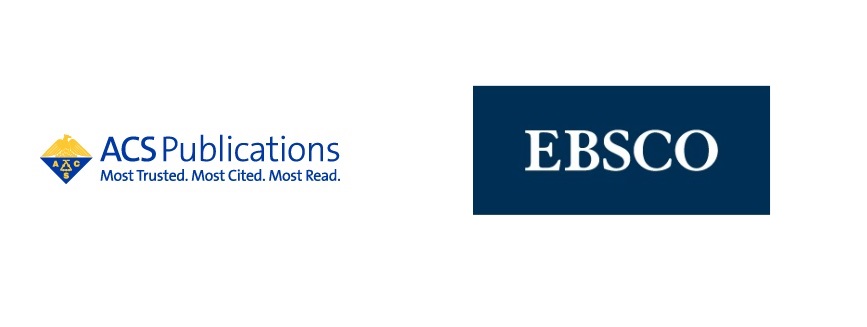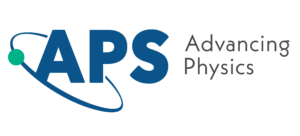The UKSG Annual Conference is a major event in the scholarly communications calendar which attracts delegates each year from around the world – librarians, publishers, content providers, consultants and intermediaries. The conference combines high-quality plenary presentations, lightning talks, workshops, posters and breakout sessions with entertaining social events and trade exhibition.
When
Monday, March 31, 2025 – 08:00 BST
to
Wednesday, April 2, 2025 – 13:30 BST
Where
The Brighton Centre
Kings Road
Brighton, BN1 2GR
United Kingdom
Venue Photos


About the Event
Conference Photo’s
Please click https://dub.sh/rVyiikZ to view the conference photo’s
Programme
Please see below for the latest programme, or you can download the PDF here
Sponsorship Opportunities
We are working again with Content Online who will work with you to create the best sponsorship package for you. See the options here. Thank you for your support – we appreciate it!
Exhibition
The Exhibition is now open for bookings, please visit: https://uksg.jewelion.com/.
View the 2025 Exhibition Manual here.
To be added to the alert list, please email info@uksg.org
Travel to Brighton
Your access needs
We’re committed to running accessible training and events. We want you to feel welcome, included, and able to fully engage in our sessions.
To help us, please share any access needs you have when prompted by our booking form. We may be in touch to ensure we’re making the right adjustments.
Further information on access facilities can be found here for the Brighton Centre or here for generally visiting Brighton. If you have any more questions or need more information please do not hesitate to contact events (at) uksg.org.
We plan to have a quiet room (no meetings or calls please) and also a multi-faith room, more details will follow nearer the time of the event.
Accommodation
Accommodation is not covered by the delegate fee. The official online accommodation bookings service hosted by Visit Brighton has now closed – click here for more details.
Visit Brighton also provide a number of special delegate offers and discounts for a variety of local tours and restaurants etc – this can be found here
Conference App
The conference app is now live, all registered delegates will receive and email with details on how to download the app. More details on the event app can be found here.
The app includes information on:
- sessions and speakers (build your own programme)
- delegates lists
- sponsors and exhibitors
- maps
- take part in ‘The Passport Game’ with a chance to win £100 in vouchers
- additional information/logistics
- polls, Q&A, session chat
- community/networking pages including ice breaking area’s.
John Merriman Award/Sponsored Places
More details on sponsored places can be found here
The John Merriman award is supported by the generous sponsorship of Taylor & Francis Group

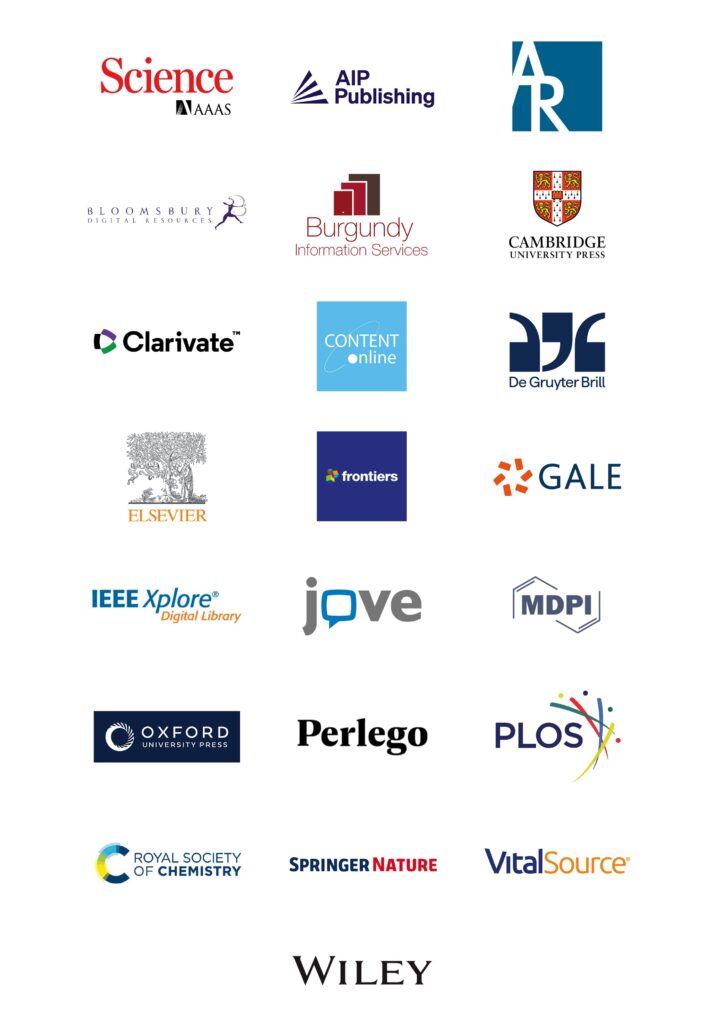
More details on sponsors can be found here
Programme
- Monday 31 March
- Tuesday 1 April
- Wednesday 2 April
- Breakoutf sessions
- Poster sessions
Time
Programme
Speakers
08.00
Registrations opens alongside refreshments and exhibition viewing.
10.00
Opening of the Conference
followed by Presentation of Awards
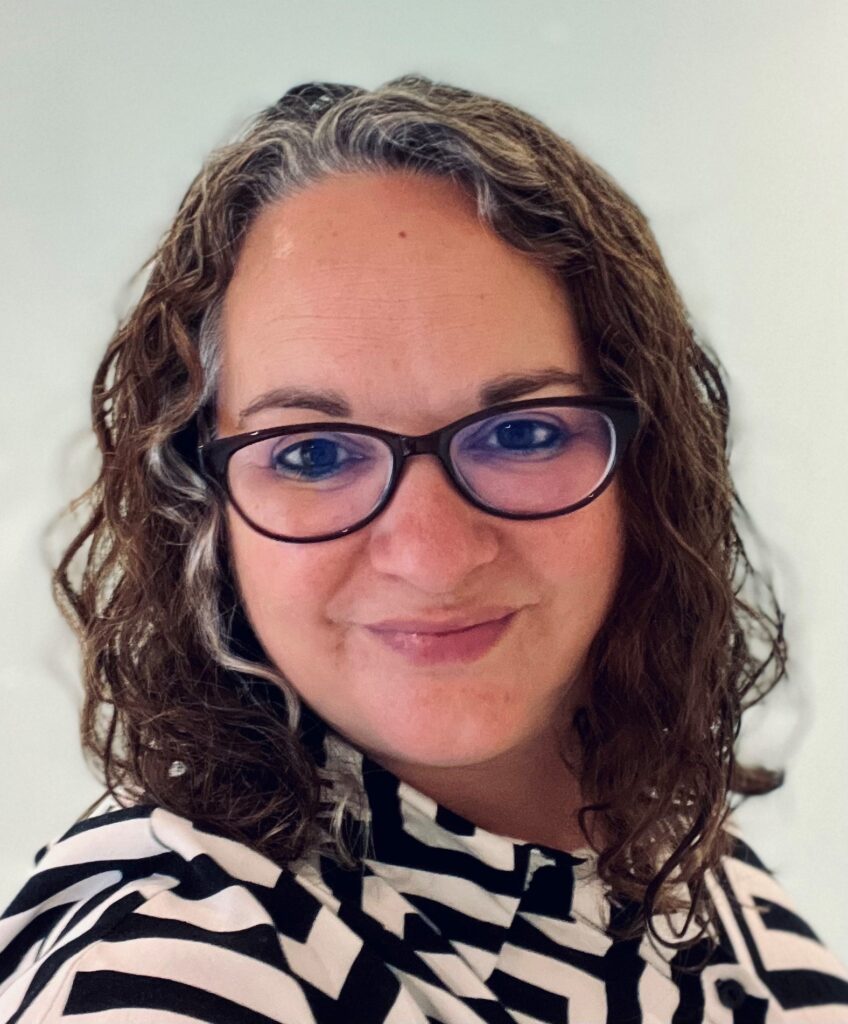
Charlie Rapple
Kudos/Chair of UKSG
See Biography
Charlie Rapple is co-founder of Kudos, which works with researchers, funders, publishers and universities to ensure research is more widely found, understood, used and cited. With a background in scholarly publishing technology and marketing, she is passionate about ensuring research is more effectively communicated. She is currently serving as Chair of UKSG, having previously served as Vice Chair, Treasurer, Chair of the Marketing Subcommittee, and co-founder of KBART. She is a member of the Editorial Board for UKSG Insights, a blogger in the Scholarly Kitchen and a Fellow of the UN’s SDG Publishers Compact. Charlie has a BA in the History of Art and Architecture from the University of Bristol, and a postgraduate MDip from the Chartered Institute of Marketing.
10.30
Plenary session 1
Navigating AI Futures: overview – Leo Lo, University of New Mexico
This session explores the transformative potential of artificial intelligence (AI) in the research and knowledge ecosystem, drawing on the ARL/CNI 2035 Scenarios report. Dr. Leo S. Lo, Dean of University Libraries at the University of New Mexico, will present four divergent scenarios developed through extensive stakeholder engagement, highlighting critical uncertainties and strategic focal points for libraries and research institutions. These scenarios range from democratized and socially integrated AI to autonomous AI systems, offering insights into potential challenges and opportunities.
AI for Academia – Kate O’Riordan, University of Sussex
Education and AI: between principles for the present and speculative futures.
In relation to AI, Universities can be seen to be shaped through contradictions:
• driving developments in AI through research, while being destabilised by them in education;
• providing stability and stewardship in relation to technocultural knowledge production, while undergoing significant disruption, instability and transformation;
• adapting and reacting in the present while anticipating speculative futures.
An engagement with the speculative futures of the ARL/CNI 2035 Scenarios report, and the role of speculation, can help to enrich strategic thinking about these contradictions and others playing out in Higher Education.
Advising and guiding AI Initiatives – Alan Oliver, Clarivate
Alan Oliver, Director of Community Engagement at Clarivate, will then discuss the work of Clarivate’s Academia AI Advisory Council, which includes Leo and 12 other Council members representing libraries and academia across 9 countries and 4 continents. The Advisory Council addresses key issues identified in the scenarios, such as bias mitigation, data integrity, and the evolving role of libraries.
This session aims to stimulate strategic thinking and foster dialogue on preparing for an AI-influenced future in scholarly communication and research practices.

Alan Oliver
Clarivate
See Biography
Alan Oliver is Director, Community Engagement at
Clarivate. Before joining Clarivate, Alan worked with ProQuest and Ex Libris, starting his commercial journey with them in 2002.
In his current role within Clarivate’s Academia & Government Strategy and Innovation Team, Alan oversees several key initiatives. His responsibilities include managing the Academia AI Advisory Council, the Web of Science Community Forum and Product Working Group, and maintaining relationships with ELUNA (Ex Libris Users of North America) and IGeLU (International Group of Ex Libris Users).

Leo Lo
University of New Mexico
See Biography
Dr. Leo Lo is the Dean of the College of University Libraries & Learning Sciences at the University of New Mexico. His work focuses on advancing AI literacy and developing training programs for library and higher education professionals. As President of the Association of College & Research Libraries (ACRL), Dr. Lo established a national task force to create a set of essential AI competencies for library workers, and created an AI Discussion Group. He studied Artificial Intelligence at the University of Oxford and holds a doctorate in Higher Education Management from the University of Pennsylvania, as well as an MLIS from Florida State University.
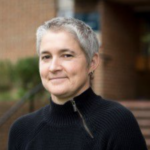
Kate O’Riordan
University of Sussex
See Biography
Kate O’Riordan is Professor of Digital Cultures and Pro Vice Chancellor for Education and Students at the University of Sussex. Her research has examined public engagement with, emerging digital and biotechnologies since the 1990s, deploying sexuality and gender as key analytical categories. She has published widely in these areas, including: Feminist Data Studies; Furious: technological feminism and digital futures; and Life and the Technological. As Pro Vice Chancellor for Education she has had oversight for developing the institutional position on AI in Education, informed by the work of the AI Community of Practice at the University of Sussex.
12.00
Lunch and Exhibition Viewing
Poster Sessions
An International Data Space for OA Book Usage Data Exchange Across Public and Private Stakeholders – Project Update – Ursula Rabar
While APIs have made it easier for libraries, publishers, policymakers, and information services to access, use and innovate with usage and metadata at scale, time and human resources are still required to manage, compile, and link OA book usage data metrics coming from multiple platforms in multiple formats. OA book usage data is even more important at this very moment when EU-funded projects such as PALOMERA worked to support policy alignment for OA monographs in Europe, and the UK has seen the implementation of their new 2024 UKRI policy including long-format outputs. It begs the question, how can OA book impact be monitored more effectively to help inform policy making?
This poster will present the project update with the findings to date and provide visitors with interactive QR codes
Database accessibility: Proactivity, transparency, buy-in – Debi Roland/Anna Dolling
How do we balance the demands of current accessibility legislation with university students’ needs for external database content?
To meet our legal requirement, we researched and sought advice from other institutions in the sector then built our own workflow which involves the implementation of a 5-point checklist. This has raised the profile of accessibility amongst our university colleagues but is skills and labour intensive.
Please come and visit our poster session to find out more and offer your suggestions.
13.30
Breakout Session – Group A
See the breakout tab for more details
13.30
Workshop 1:
Citizen Science in Libraries: Towards Societal Impact
Citizen Science is manifesting itself in universities, research institutions and libraries and the last few years centers or hubs that facilitate a dialogue between researchers and communities have emerged. Libraries very much can play a crucial role in making not only public engagement but also research outcomes happen in practice thus supporting both scientific and societal impact.
Citizen Science can be seen as part of a global knowledge mobilization that can help solve wicked problems from climate change over health inequalities to extreme poverty (Hodgkinson et al. 2022) but is the same time manifesting itself very differently around research institutions and libraries (Kaarsted et al. 2023). There is no one size fits all.
This workshop addresses this. It brings three brief cases from the U.K. and Europe, has a take on the importance and implementation around societal impact and offer tips and practices on how libraries can get started. The presenters and facilitators are all part of the LIBER Citizen Science Working Group and offers their very different experiences towards one common goal: Getting started.

Thomas Kaarsted
SDU Citizen Science Knowledge Center
See Biography
| Thomas Kaarsted is Director of the SDU Citizen Science Knowledge Center and Deputy Library Director at same university. He has worked with integrating Citizen Science and Open Science in research libraries and universities sinde 2017. He is project manager of a long range of CS-projects and also serves on the LIBER Executive Board. |
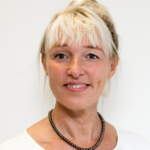
Anne Kathrine Overgaard
University of Southern Denmark
See Biography
Anne Kathrine Overgaard is Head of Research & Innovation Support at the Faculty of Health Sciences at University of Southern Denmark (SDU). She collaborates closely with management on strategy development and implementation in an RMA setup spanning from pre-pre-ward to innovation and impact through an involvement of external stakeholders and potential end-users. She founded the SDU Citizen Science Knowledge Centre with Thomas Kaarsted. The Citizen Science Centre, located in the Research Library, is regarded as a crucial partner in engaging stakeholders and citizens in research aimed at creating societal impact. Anne Kathrine Overgaard is the key link in this collaboration, which is seen as essential for fulfilling the faculty’s strategy and vision.

Nel Coleman
University of Edinburgh
See Biography
Nel Coleman (they/them) is part of the Open Research team at the University of Edinburgh Library. Having joined the team early in 2022, their role has been to connect the library with citizen science activities across the University; from the medical school to the arts and humanities. They work to develop infrastructure to support participatory research, and to secure active partnerships between the library and key networks, groups, communities and hubs – helping to support the active involvement of non-professionals in research.

Kirsty Wallis
University College London
See Biography
Kirsty is currently Head of Research Liaison in UCL Library services where she also leads the day-to-day running of the Office for Open Science and Scholarship. This broad remit is built upon the LERU 8 Pillars of Open Science and brings together teams from across the institution around a common goal. This includes particular focus on creating a community around citizen science and developing an advocacy and support service. Kirsty is also a part-time PhD student, researching the evolution of research support services in Libraries and the effect of the shifting policy landscape.
14.30
Breakout Session – Group B
15.30
Refreshments and exhibition viewing
16.00
Breakout session – Group C
17.00
Lightning Session 1
The right to use AI : protecting and advancing learning and research. Jisc Licensing and the ICOLC AI Task Force – Ben Taplin
As AI has developed rapidly, vendors have begun to present libraries with new licence language defining rights and restrictions. Faced with new clauses that sought to prohibit use of licensed content in AI systems, a group of licensing specialists across the world came together in early 2024 to work collectively to ensure library user rights are maintained.
This session will discuss why blanket bans on AI in licences are wrong and how the ICOLC AI Taskforce supports libraries in resisting them, enabling the full legal use of AI technologies to transform teaching and research and ensure equitable access to information.
Enhancing Open Research Culture at the University of York: Lessons Learned from our Community of Practice – Luqman Muraina
This lightning talk shares successes, challenges and lessons learned on the development of a cross-disciplinary open research (OR) community of practice at the University of York, told from the perspective of our Graduate Engagement Leads. This role was created in 2023 for three postgraduate researchers in support of the University’s strategic commitments towards OR.
Achievements from the past year included the completion of a university-wide survey, the introduction of new communication channels and continuation of our OR Awards scheme. Ongoing activities include the introduction of a regular community discussion series and review of the OR Skills Framework based on community feedback and engagement.

Ben Taplin
Jisc
See Biography
| Ben Taplin has been Jisc’s contract and licensing specialist for ten years. He is also a member of Jisc’s Artificial Intelligence group and the ICOLC AI Taskforce. |
Luqman Muraina
University of York
See Biography
| Luqman Muraina started the Global Development PhD programme at the IGDC, University of York in 2023 and completed the MA Sociology degree at the University of Cape Town, South Africa in 2022 with funding from the Mastercard Foundation and completed the B.Sc. Sociology degree from Olabisi Onabanjo University, Nigeria. He has over three years of teaching and research assistantship experience and is currently engaged as a Graduate Engagement Lead for Open Research at the York university’s library, where he supports the university’s commitment towards Open Research as a default research practice. He researches on decolonization and politics of knowledge, higher education, African politics & development, Black feminism, etc. |
17.30
Exhibition viewing and reception
TBC
Supper and quiz or free evening
Sponsored by

Time
Programme
Speakers
08.00
Registration
08.30
Lightning Session 2
Building the Future: Addressing the Educational Gaps and supporting the development of a Professional Identity for Research Librarians – Lucy Roper & Charlotte Wein
Despite the global prevalence of research librarians, there is a notable absence of formal educational programs specifically designed for this profession in many countries. This deficiency poses significant challenges to the formation of our professional identity: The absence of shared theories, methods, and ethical standards hinders the development of a unified professional identity.
We will present some ongoing initiatives focusing on training and resource provision for early career research librarians and demonstrate how Lucy’s latest work, The Solo Librarian: A Practical Handbook, provides insights and practical guidance for librarians working alone or in small teams.
These Flipping Publishers…! Finding Our Way to OA – Beth Bayley
We can all get on board with Open Access in principle: Few would oppose all people having access to knowledge that improves lives. But the road to achieving it is bumpy. As a publisher with a genuine aim to move to OA, we’ve tried it all – flipping, Transformative Agreements, Transformative Journals, Subscribe to Open, Gold OA, and Diamond OA. This session charts the OA journey of one of the industry’s smaller, and independent, publishers, focusing on practical aspects. Can broader lessons be drawn from our experiences?
Open Research Spaces: How a library can foster an open environment – Leah Burns
The space of a library has undeniably changed and adapted to the trends of academia. This session will highlight how the physical and virtual space of a library can shift to foster an environment of Open Research, of mutual aid between academics, and welcome non-traditional knowledge sharing.
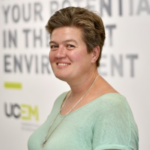
Lucy Roper
UCEM – University College of Estate Management
See Biography
| Lucy Roper is an academic librarian at the University College of Estate Management (UCEM). Her role is to manage, organise, evaluate, and disseminate information, supporting members of the UCEM academic community, including students, lecturing staff and researchers. Lucy has over twenty-five years of experience managing library and information services, ten years working as a solo librarian at UCEM and wrote The Solo Librarian: A Practical Handbook in 2024. With the advancements in information governance, she took on additional responsibilities, becoming Strategic Copyright Lead, ensuring that UCEM and the library and information services provided comply with copyright and data protection legislation. |
Charlotte Wien
Elsevier
See Biography
| Dr. Charlotte Wien is a full professor of scholarly communication at Arctic University Tromsö, Norway and Vice President of Library Relations at Elsevier. Charlotte has worked both as a scholar and as a librarian previously and has extensive experience in curricula development for librarians. During her career she has focused on the research libraries transformation from ‘classical library’ to ‘service center for researchers and students’ and the derived consequences in terms of the changing competence needs for librarians. She holds two master degrees, of which one is in Library Science and PhD-degree in information retrieval. |
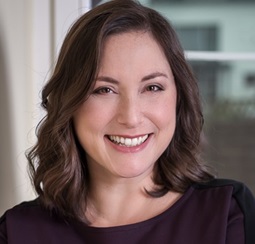
Beth Bayley
Karger Publishers
See Biography
Beth Bayley is Open Science Manager at Karger Publishers, a health sciences publisher based in Switzerland. She also co-leads Karger’s Open Science Task Force as well as the Karger Ambassadors Program. Specializing in Open Access since 2010, Beth is engaged with strategy, policy, and communications to support Karger in its drive toward a sustainable transition to Open Access that will serve all stakeholders, from libraries to authors to research funders and the broader public.

Leah Burns
Lancaster University
See Biography
Leah is part of Lancaster University’s Open Research team based in the library. They manage and organise training and embed open research practices throughout the university. With a Masters in literary studies and bountiful experience with research ethics, Leah combines her passions of Open Access, citation ethics, and accessibility in the academic sphere with the physical space of the library.
09.00
Plenary Session 2
Cyber Security and the Academic Library: What to Be Worried about and What to Do- Rick Anderson and team – Rick Anderson, Heather Lowrie, Susie Winters
Academic libraries are ripe targets for cyberattack, given both the high value of the content they licence and the sensitive data hosted in the campus networks to which they are a portal. Criminals use social engineering as well as brute force attacks to try to gain access to both campus information and campus systems – and too often, they are successful. In this presentation, a publisher, an academic library director, and a higher-education cybersecurity consultant will share experiences that illustrate these dangers and share strategies libraries can use to help safeguard their institutions’ networks.
How to respond to a cyber attack in the real world – TBC
I will share details about an incident response to a cyber attack, focusing on the human impact of managing a security breach. Highlighting how team members react differently to such a crisis and shares key takeaways including the importance of having a solid incident response plan, regular employee training, and crisis management to ensure business continuity and resilience.

Rick Anderson
Brigham Young University
See Biography
Rick Anderson is University Librarian of Brigham Young University. He serves on numerous editorial and advisory boards and is a regular contributor to the Scholarly Kitchen. He has served as president of NASIG and of the Society for Scholarly Publishing, and is a recipient of the HARRASSOWITZ Leadership in Library Acquisitions Award. Rick is the author of three books, including Scholarly Communication: What Everyone Needs to Know (Oxford University Press, 2018), which has been published in three languages.
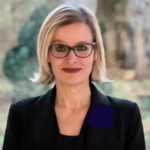
Heather Lowrie
Independent Security Advisor
See Biography
Heather Lowrie is a seasoned technology, security and risk leader with a track record of achievement in government, public and private sectors. She was recognised by her peers as “CISO of the Year 2024” at SC Awards Europe and is a Fellow of the Chartered Institute of Information Security.
With experience spanning in-depth engineering to board level management, Heather is adept at setting direction and taking accountability for security in large and complex organisations. She is an accomplished strategist with significant experience of leading through crisis (including managing major cyber incidents), and leading strategic change for digital, AI & security transformations.
Heather served as the first Chief Information Security Officer for The University of Manchester, building security capabilities and leading through a significant cyber incident. Prior to that, she worked in Scotland’s public sector, orchestrating the cybersecurity efforts behind Scotland’s first digital-first Census. She has also held various technical and technical leadership roles in the financial services industry. Heather is a member of the UK Advisory Council for ISC2 and the Advisory Council for Infosecurity Europe.

Susie Winters
Springer Nature
See Biography
Susie Winter is Vice President Communications at Springer Nature.
Susie joined Springer Nature from the Publishers Association, the trade association for the publishing industry in the UK where, as Director of Policy and Communications, she was responsible for developing and leading the PA’s work across the policy agenda as well as promoting the contribution made by the UK publishing industry at both a UK and European level.
Prior to that, she was the first Director General for the Alliance for Intellectual Property, working to ensure that the importance of IP rights to the UK economy is recognised. Having begun her career as a Press and Broadcasting Officer for the Liberal Democrat Party she then spent several years at communications consultancy Luther Pendragon.
10.30
Refreshments and exhibition viewing
11.00
Breakout Session – Group A
11.00
Workshop 2: Managing Innovation and Hype Cycles in Academic Libraries: From Reactive to Strategic
How can academic libraries navigate the complex landscape of emerging technologies while maintaining service excellence?
This interactive workshop will explore how to effectively evaluate and manage (technology) hype cycles within the constraints of academic library resources. It will introduce key frameworks such as Gartner’s hype cycle (Linden & Fenn, 2003) and Roger’s diffusion of innovation (2003) for understanding technology hype cycles and their impact on library services. This session posits that the emergence of critical, systematic analysis of emerging technologies will become a key skill within librarianship. Understanding these frameworks could be central to information literacy innovation and information management infrastructures.
Drawing on examples from artificial intelligence, decolonisation initiatives, and digital transformation, participants will explore how libraries have navigated recent changes, identifying successful strategies and common pitfalls. Participants will critically examine the lessons learned and discuss strategies for responding to future developments.
The workshop emphasises that hype cycles, while challenging, can drive positive innovation when managed strategically. Participants will examine how to recognise where trends sit within these cycles and develop frameworks for deciding when, how, and, crucially, whether to invest limited resources.

Siobhan Haime
Open Library of Humanities
See Biography
| Siobhan is the Publishing Technologies Librarian at the Open Library of Humanities and Janeway Systems. She oversees support for service and leads on improving metadata and discovery. Siobhan is passionate about Open Access, Knowledge Equity, Open Education, and has a keen interest in digital transformation and technological advances in librarianship. |
12.00
Lightning Session 3
The hidden REF, celebrating all research outputs – Lyndsey Ballantyne
Our 2021 and 2024 competitions highlight the diversity of contributions, from librarians and technicians to research software engineers and administrators — vital roles often overlooked in traditional assessments. In 2023, the Festival of Hidden REF gathered professionals and policymakers to discuss creating a more effective and equitable research environment.
The Hidden REF campaign recognises all research outputs and roles that make research possible.
I will share our initiatives, outcomes, and strategies for gaining recognition for these roles, inviting the UKSG community to collaborate and discuss strategies for gaining well-deserved recognition for these hidden roles.
Lessons Learned in the UK from Navigating the FAIR Open Research World: A Collaborative Approach to Transforming Library Workflows – Martin Jagerhorn
Lancaster University is a typical, mid-sized UK institution. With a small research support team, the library needs innovative technology and partners to meet the ever-increasing challenges of the rapidly evolving Open Research World. This presentation focuses on solutions to the cumbersome depositing of publications in institutional repositories (IR).
World-wide almost every university has an IR, and nearly everyone faces the challenges of lacking data quality and coverage, with faculty frustrated over the clunkiness and overwhelming manual workload of data entry. Furthermore, research outputs increasingly require a plethora of checks necessitating FAIR and evermore extensive meta-data. Is this article eligible for APC funding or covered by an agreement, and compliant with our and the funders OA policies?
At Lancaster, we use our Current Research Information System (CRIS) for fulltext deposits, but it is faced with the same challenges. With more and more OA routes and ballooning publishing charges, our presentation delves into a first-of-its-kind innovation and collaboration with technology partners and illustrates to what extent we can hit the sweet spot for effectively managing open research workflows through a combination of AI scanning of manuscripts, integrations and a simple user interface, while upholding the flag of FAIR data principles.
Jisc’s open policy finder – re-developing Sherpa and looking to the future – Karen Jackson
Jisc’s Open Policy Finder, formerly Sherpa Services, has undergone significant changes over the past year as part of our commitment to building a future-ready, streamlined, and efficient product to support open access workflows. These changes represent not just a fresh identity but also the foundation of a platform designed to adapt and scale for future use cases, ensuring continued relevance and impact in a rapidly evolving environment.
This lightning talk will showcase the key enhancements we’ve implemented, including the launch of our unified website and the rebranding of the service in November 2024. We will share our roadmap for further development, focusing on creating solutions that anticipate and respond to the changing demands of our users.
We invite attendees to explore our accompanying poster and share feedback on the changes.
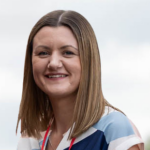
Lyndsey Ballantyne
Software Sustainbility Institute
See Biography
| Lyndsey Ballantyne is a Community Manager at the Software Sustainability Institute where she plays a key role in advocating for under recognised contributors to research. By organising workshops, conferences, and networking events, she creates opportunities for people from different backgrounds to contribute to and benefit from the research software ecosystem. She is involved in the Hidden REF initiative, which aims to recognise the often-overlooked work of research staff, such as software engineers, librarians and publishers in traditional assessments like the Research Excellence Framework (REF). Lyndsey promotes inclusivity and recognition for essential behind-the-scenes roles, ensuring their contributions to research are valued and celebrated. |

Martin Jagerhorn
ChronosHub
See Biography
Martin has about 20 years of experience in research information management. Since 2019, he heads Business Development at ChronosHub and establishes collaborations with institutions, consortia, funders and publishers to streamline open access management processes. Besides ChronosHub, he has co-founded or funded businesses like Avedas, Morressier and Zendy and acted as advisor towards nonprofit initiatives including national and international Open Science infrastructure initiatives. His educational background includes an MSc in Industrial Engineering with a specialization in Information Systems.

Karen Jackson
Jisc
See Biography
Karen is a product manager in the research management team at Jisc, working on open policy finder (previously Sherpa services). She has been at Jisc since 2017, and previously worked in HE libraries with a particular focus/interest in open access and institutional repository management & administration

Karen Jackson
Jisc
See Biography
Karen is a product manager in the research management team at Jisc, working on open policy finder (previously Sherpa services). She has been at Jisc since 2017, and previously worked in HE libraries with a particular focus/interest in open access and institutional repository management & administration
12.30
Lunch & exhibition viewing
14.00
Plenary Session 3:
Empowering Neurodivergent Staff, Learners and
Researchers: The Library as a Partner in Success
Neurodiversity is increasingly recognised as a natural variation in human cognition, encompassing conditions such as ADHD, autism, dyslexia, and dyspraxia. Neurodivergent individuals possess unique strengths and face distinct challenges in academic environments. As a librarian with ADHD, I have experienced at firsthand the barriers and frustrations that neurodivergent students and staff can encounter when navigating academic libraries. This presentation will draw upon those personal experiences and wider research to explore how libraries can create more inclusive and supportive environments for neurodivergent users by tailoring digital resources and training to their specific needs.
The panel discussion will begin by sharing personal experiences of being neurodivergent within the workplace, examining the challenges faced by neurodivergent individuals in academic libraries, such as information overload, sensory sensitivities, and difficulties navigating complex systems. It will then highlight the opportunities for libraries to provide targeted support through a range of digital resources and training initiatives. These could include curated collections of accessible tools and resources, online tutorials and guides with alternative formats, assistive technologies, and self-paced online courses. The presentation will also emphasise the importance of fostering a neurodiversity-affirming culture in libraries through staff training, inclusive design practices, and the development of peer-to-peer support networks, such as buddy schemes.
This presentation will support library staff in creating a more inclusive and supportive library environment for all users. It will also contribute to the ongoing conversation about neurodiversity and inclusivity in higher education, aligning with the UKSG conference’s commitment to diversity and the exchange of ideas on scholarly communication.

Caroline Ball
University of Derby
See Biography
Caroline Ball is academic librarian for Business, Law and Social Sciences at the University of Derby. She is a Senior Fellow of the Higher Education Academy and has also worked as a copyright and licensing advisor and a lecturer in publishing. She is a keen advocate for librarians’ role in driving forward social justice in higher education, in recent years co-founding the #ebookSOS campaign, serving on the committee for NLISN (Neurodivergent Library and Information Staff Network), and is in her second terms as a trustee for Wikimedia UK.

Andrew Walsh
SCONUL
See Biography
Andrew works part-time supporting Academic Libraries North, part time freelance. Most of his time is nowadays spent running workshops around neurodiversity, pedagogy, playful learning, playful leadership, Lego and other fun things. He is co-chair of NLISN (nlisn.org), co-chair of the Playful Learning Association, and editor of the Journal of Play in Adulthood. He is joining the panel as an autistic, ADHD and dyspraxic librarian

Jo Fitzpatrick
Lancaster University
See Biography
Joanne is seconded to the Open Book Futures project at Lancaster University, supporting the accessibility of diamond open access monographs, and is part of the Open Research team in the Library, with experience in Research Data Management and Bibliometrics. As Co-Chair of the Neurodivergent Library and Information Staff Network (NLISN) she works to provide peer support for neurodivergent library staff. She is joining Caroline on this panel as a diagnosed autistic librarian.
15.00
Breakout Session – Group B
15.00
Workshop 3: Towards a Barrier-Free Future: Integrating Open Research into Publishing Practices
For over 20 years, UK institutions, libraries, Jisc, funders, and publishers have collaborated to make open access publishing standard practice, but broader open research practices have lagged behind. Policy developments and no-additional-cost agreements have expanded open access and highlighted barriers in publishing. More recently, attention has shifted to open research, but barriers in research and publishing systems persist. As negotiations are underway for post-Plan S agreements, this workshop will examine how publishing can better support open research practices, address barriers, and anticipate unintended consequences. Participants will contribute to draft recommendations, with a focus on open research and publishing practices.

Steven Vidovic
University of Southampton
See Biography
Steven Vidovic, Head of Open Research & Publication Practice at the University of Southampton, champions transparency and reproducibility in research, research integrity, and research culture. With a background in earth and environmental sciences and roles in both academic publishing and libraries, Steven has led initiatives and policy development to support open research, responsible metrics, and authorship standards at Southampton. He has contributed to national advisory groups (UKRI, NIHR, Jisc) and served as Chair of the DOAJ Advisory Board.
Ruth Harrison
Imperial College London
See Biography
TBC
16.00
Refreshments and exhibition viewing
16.30
Breakout Session – Group D
TBC
Gala Evening
Sponsored by
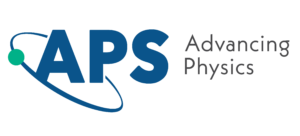
Time
Programme
Speakers
08.00
Registration and refreshments
09.00
Plenary 4
Challenges and Opportunities: Building an Equitable Research Culture for Marginalised Researchers – Emily Ennis
This talk provides an overview of some of the sector-specific challenges facing marginalised researchers in the UK and highlights the work universities and funders are doing to begin tackling these obstacles. Approaching the issue from a research culture perspective, this session focuses on data collected from staff surveys, HR records, and funding databases at University of Leeds to outline the challenges facing marginalised researchers. While these data do not provide an exhaustive list of challenges, they provide early insights into the deep-rooted systemic inequities in the research sector as well as opportunities for making a more inclusive, supportive, and equitable research culture.
Metrics that Matter: Identifying and Testing Scalable Metrics for a Gender Equitable Research Culture – Francesca Soldati
Research metrics are widely used in recruitment and promotion decisions but reliance on these metrics has led to unintended consequences, including gender disparities within the academic landscape. It is well documented that women in research, particularly those in early to mid-career stages, often face challenges such as lower publication rates and fewer citations than their male counterparts, while remaining underrepresented in senior positions. However, the underlying causes of these discrepancies remain unclear; this project proposes an investigation into the relationship between research culture, gender, and career outcomes, aiming to identify scalable metrics that can better support gender equity in research.

Emily Ennis
University of Leeds
See Biography
Dr Emily Ennis is the Research Culture Manager for the University of Leeds. She builds relationships with researchers and research enablers across the University to better understand diverse research cultures and ensure wide-reaching impacts from the work led by the Research Culture team. She oversees a variety of research culture initiatives at the University, including targeted interventions tackling inequities in the research environment. Emily previously worked in research and impact management at Leeds, enabling her to build a comprehensive knowledge of the full research lifecycle, including how research is used beyond the sector. Emily is also a recovering academic.
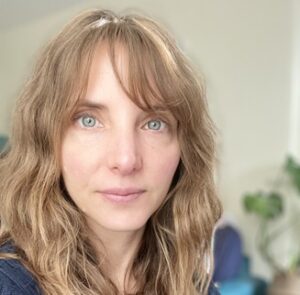
Francesca Soldati
University of Aberdeen
See Biography
Francesca is an Open Research Officer at the University of Aberdeen (UK), where she promotes the responsible use of research metrics and supports researchers in adopting open research practices. Before joining the Open Research Team in 2021, Francesca gained a PhD in Conservation Biology and held various roles at the University of Lincoln. She now applies her analytical skills from biology to bibliometrics, research impact assessment, and understanding how these areas influence research culture.
10.00
Breakout Session – Group C
11.00
Refreshments and exhibition viewing
11.30
Breakout Session – Group D
12.30
Plenary 5
Stopping Short of the Goal: Is Open Access Really Fulfilling Its Promise to the Public?
The panel discussion, titled “Stopping Short of the Goal: Is Open Access Really Fulfilling Its Promise to the Public?” will delve into whether Open Access truly serves the public interest as it often said to be aiming to.
While Open Access is often described as making taxpayer-funded research freely accessible, the conversation will explore if access is sufficient, or if the concept falls short by not addressing the accessibility of information in a way that the general public can understand and apply in their lives. And if it is insufficient, what should be done to support this part of the mission of OA. Is the purpose of Open Access solely to facilitate academic exchange, or should it be evolving to bridge the gap between researchers and the public, increasing public engagement and understanding of scientific findings? This panel will tackle these complex questions and discuss if there’s a need to differentiate between Open Access and science communication, assessing the distinct but complementary roles both play in disseminating trusted, comprehensible information.
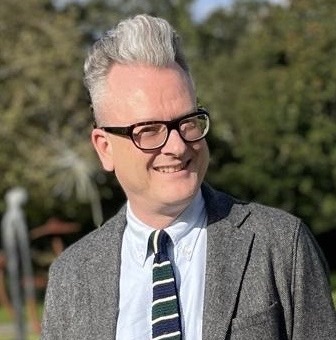
Andrew Barker
Lancaster University
See Biography
Andrew Barker has been Library Director at Lancaster University since September 2019. Prior to that he held a number of senior roles within a wide range of UK universities, including both Russell Group and Post 1992 Institutions. Within these institutions he has been responsible for all aspects of library leadership. Throughout his career in HE Andrew has also worked visibly, and actively, across the sector, often working closely with publishers on projects and advisory boards. He was a trustee of UKSG between 2014 and 2022, and was chair of its trustee board 2018 and 2022, he is currently Co-chair of SCONUL.
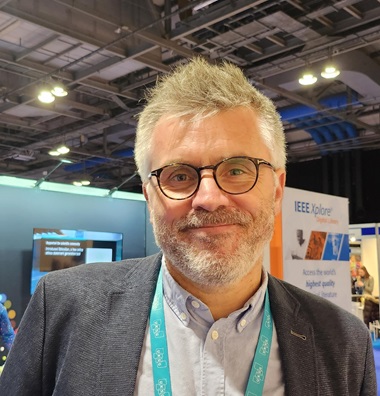
Chris Box
Karger Publishers
See Biography
Christian Box is the Head of Academic and Research Markets at Karger where he is responsible for the interactions, products and services across the Academic customer base. Prior to joining Karger he spent 16 years with Institute of Physics Publishing in the UK where he held a range of positions. Chris holds a BSc (hons) degree in Applied Biochemistry and Molecular Biology as well as a MSc Financial Management.
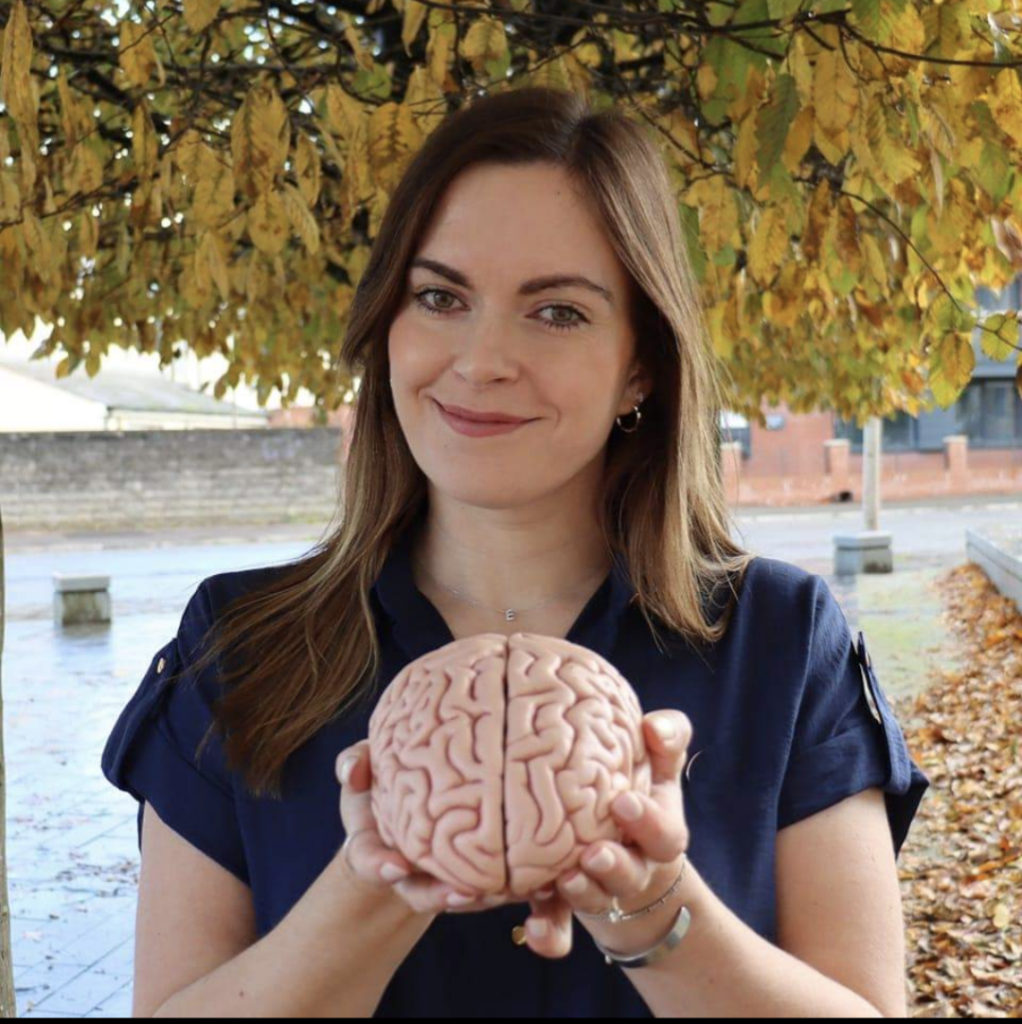
Emma Yhnell
Cardiff University
See Biography
| Emma Yhnell is a multi-award-winning science communicator and educator who specialises in using innovative and engaging methods to effectively communicate complex topics to non-specialist audiences. A committed change-maker, margin mover and regular media commentator, Emma’s work to make science more accessible, inclusive and fun extends globally. |
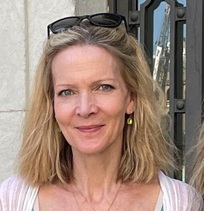
Marion Boland
Research Ireland
See Biography
TBC
13.15
Summary and Close
Time/Group
Programme
Speakers
GROUP A
Group A
Doing DORA: A small-scale project to upscale research culture and research integrity
Inspired by colleagues’ work to embed the principles of DORA but frustrated by the snail-like pace at our own institution, we embarked on a plan of small workshops to Do DORAif/where we could. What developed over the next 12 months was in the spirit of our original plan but far beyond what we had envisaged. This breakout will discuss the ways in which circumstance actually embedded, promoted and advocated for DORA with a shoestring budget and time where available. We will discuss practical promotion, guerrilla good-practice, unexpected outcomes and embracing flexible opportunities when it comes to Doing DORA.
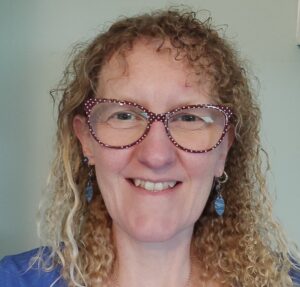
Cath Dishman
Liverpool John Moores University
See Biography
Cath is the Open Access and Digital Scholarship Librarian at Liverpool John Moores University. She takes the lead for open access advocacy at LJMU and manages the institutional repository and open journals service. Cath has over 20 years’ experience in libraries in a range of roles from academic services, customer services, user support and most recently research support. Cath is also the Content Officer for CILIP’s Library and Information Research Group (LIRG)

Katherine Stephan
Liverpool John Moores University/Think.Check.Submit.
See Biography
Katherine Stephan is the research engagement librarian at Liverpool John Moores University. She is responsible for organising library training related to research, outreach, engagement and publishing for all researchers at LJMU. She has a background in children’s librarianship and is a keen advocate of local libraries, open research and responsible research assessment. She is the librarian member of Think, Check, Submit (an initiative to help researchers identify trusted journals for their research); a member of the UKSG’s outreach and engagement committee; and a co-organiser of Open Research Week, a collaboration between LJMU, Edge Hill, Essex and Liverpool Universities.
Group A
The Library CEO: Managing Politics, Technology and Talent as the New Paradigm
Managing an academic research library in the 21st century has no blueprint. Since the introduction of electronic resources, fundamental changes to the work of the library have been underway. Leading a modern library that is subject to perpetual shifts in its priorities, mandate, and budget, requires a set of skills and competencies not taught in library or information science programs. A unique assortment of mentorship, executive coaching, business and/or legal training, and hard won experiences are required to be successful in this new environment. Contrary to popular belief, library directors have more in common with Chief Executive Officers than they realize. But far too often the transition to library leadership is sabotaged when the expectation to manage a collection is confronted with the reality of managing an organization. This conversation among library leaders will introduce the concept of the Library CEO, offering a practical framework for both current and aspiring leaders to become proactive in managing a high performance workplace.

Tony Zanders
Skilltype
See Biography
Tony Zanders is an award-winning software entrepreneur and technology executive, currently serving as the founder and CEO of Skilltype — a software platform for information professionals and their teams to analyze, develop, and share expertise. Prior to Skilltype, Zanders served as the inaugural entrepreneur-in-residence at the Boston University Libraries, advised the senior leadership team on talent and the future of work. For nine years, he held executive roles at EBSCO and Ex Libris, where he consulted library leaders across six continents on technology strategy.
Tony is a frequent speaker and writer in library and higher education communities. Zanders is an honors graduate from Washington and Jefferson College, where he double majored in English and Philosophy, and was awarded the college’s Young Alumni Award in 2015. A proud native of New Orleans, Louisiana, he currently lives in Baton Rouge with his wife and children.Tony Zanders is an award-winning software entrepreneur and technology executive, currently serving as the founder and CEO of Skilltype — a software platform for information professionals and their teams to analyze, develop, and share expertise. Prior to Skilltype, Zanders served as the inaugural entrepreneur-in-residence at the Boston University Libraries, advised the senior leadership team on talent and the future of work. For nine years, he held executive roles at EBSCO and Ex Libris, where he consulted library leaders across six continents on technology strategy. Tony is a frequent speaker and writer in library and higher education communities. Zanders is an honors graduate from Washington and Jefferson College, where he double majored in English and Philosophy, and was awarded the college’s Young Alumni Award in 2015. A proud native of New Orleans, Louisiana, he currently lives in Baton Rouge with his wife and children.
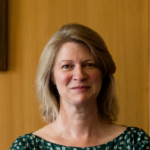
Jessica Gardner
University of Cambridge
See Biography
Dr Jessica Gardner has been University Librarian at Cambridge since 2017, and is also a Syndic of Cambridge University Press and Assessment. Former Chair of RLUK (2021-2023), Jessica was previously University Librarian at the University of Bristol and Director of Library and Culture at the University of Exeter.
K Matthew Dames
University of Notre Dame
See Biography
Dr. K. Matthew Dames serves as Special Advisor to the Provost at the University of Notre Dame. This role enables him to utilize his legal, business and strategic expertise on opportunities facing the academy, including artificial intelligence. From 2021 to 2022, Dr. Dames was the 61st President of the Association of Research Libraries (ARL), the leading North American trade association for research libraries in academia and federal government. From 2021–2024, Dr. Dames was the chief executive, academic, and talent officer of the Hesburgh Libraries and the university’s Press at the University of Notre Dame.
Group A
From Cataloguing to Discovery: a journey of innovation and resilience
We will talk about the development of the Metadata Team at the University of Leeds. Over the last seven years the team has evolved from a traditional, book-in-hand Cataloguing Team to a forward thinking, dynamic Metadata & Discovery Team. We are now involved in myriad projects ranging from internal Special Collections cataloguing to the development of international linked data and BIBFRAME partnerships.
We will cover five key areas that have contributed to this development. We will share techniques, approaches and examples from the last few years that illustrate the value and importance of a people-centric approach to metadata and discovery.
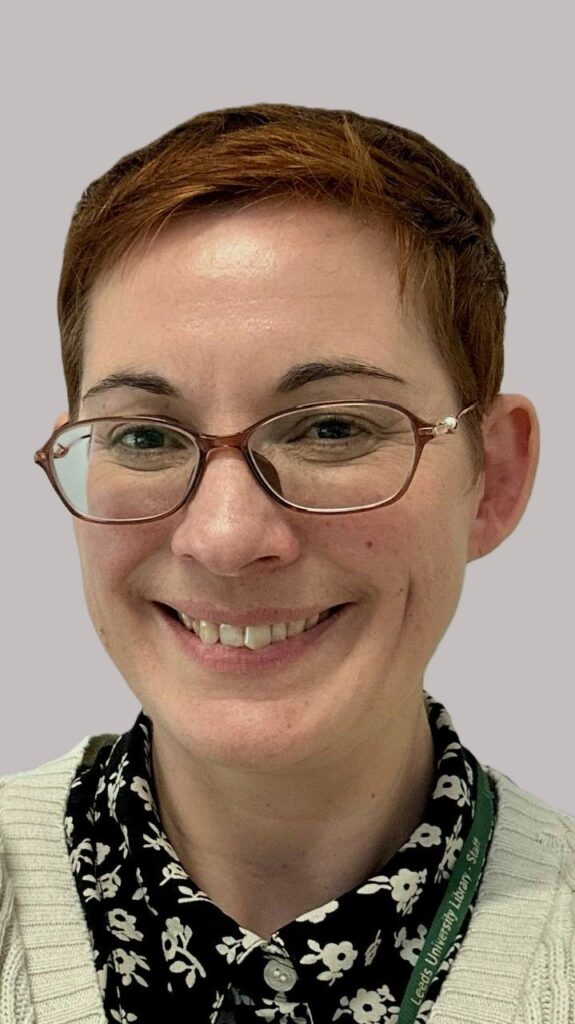
Elly Cope
University of Leeds
See Biography
Elly Cope is a cataloguer by inclination and training, though she now has to watch while others do the fun stuff and derive what pleasure she can in the metadata work vicariously. She provides strategic leadership and a supportive environment for experimentation and development to the Access & Acquisitions teams at the University of Leeds. Having joined the University as Metadata Team Leader she is now Head of Access & Acquisitions with responsibility for purchasing, reading lists, accessibility of e-resources, metadata, access and discovery.
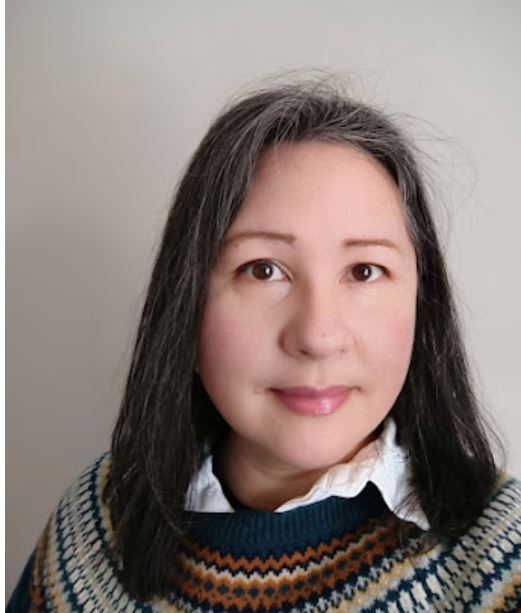
Alison Hazelaar
University of Leeds
See Biography
| Alison Hazelaar has been a leader in the Metadata Team since joining as a cataloguer in 2000. She is now the strategic manager, bringing together projects ranging from rare books cataloguing to the development of linked data initiatives. Alison believes in a coaching approach and development opportunities (but only once she’s had her own fun developing the process). |
Group A
Bridge Over Troubled Water: Supporting Society
Publishers in Turbulent Times
Just as independent bookshops survive through online partnerships and customer loyalty, could learned society publishing thrive through similar collaborative approaches? This session presents new global evidence from Research Consulting and CCC on how society publishers are navigating industry transformation. We’ll examine changing publication patterns, revenue trends, and how libraries, vendors and partners can help societies maintain their independence while accessing world-class publishing capabilities. Learn how embracing “irrational” choices in scholarly communications could help preserve the diversity of academic publishing.

Rob Johnson
Research Consulting
See Biography
| Rob Johnson is the Managing Director of Research Consulting, a mission-driven business which works to improve the effectiveness and impact of research and scholarly communication. He began his career with KPMG, the international professional services firm, before working in a senior research management role at the University of Nottingham. Since founding Research Consulting in 2013 he has led more than 150 projects in the field of scholarly communication and research. He is a UKSG Trustee, a Fellow of the Institute of Chartered Accountants in England and Wales and holds an MSc in Higher Education Management from Loughborough University |
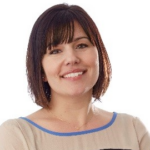
Jamie Carmichael
CCC
See Biography
Jamie Carmichael brings 22 years’ experience in publishing to her current role as Senior Director, Information & Content Solutions at CCC. In this position, she leads go-to-market strategy for open access workflow and data solutions that support the scholarly communications industry in its shift to open science, including RightsLink for Scientific Communications and OA Intelligence. Jamie currently serves on the NISO OA Business Processes Working Group, focusing on metadata management and author workflows

Bethany Logan
University of Sussex
See Biography
Bethany Logan is the Research & Open Scholarship Senior Manager at the University of Sussex. She has worked in academic library roles since 2006 and currently leads the design and delivery of Library services to support research and open scholarship, embedding principles Open Research and Scholarship in policy, practice, and culture across the University.

Maggie Simmons
Geological Society of London
See Biography
Maggie is the Director of Publishing at the Geological Society where she is responsible for the leadership of the Society’s independent journal and book publishing activities. This includes all aspects of the publication process and services, collaborative endeavours, and the development of sustainable future models. Prior to this Maggie held editorial development roles at both the Geological Society and IOP Publishing. Maggie is a Council member of the Society Publishers’ Coalition (SocPC).
Group A
Raising the grade and closing the gap? Exploring the link between inclusive library collections and student success
How do we evidence the impact of inclusive library collections on the university community? How do we convince university leadership that the value-added potential of the library is worth the investment?
At King’s, multiple initiatives are underway to assess the impact of library collections on student attainment. These projects, rooted in inclusive education principles, aim to support student success, promote diversity, equity, and inclusion, and strengthen the student experience. This presentation will offer a summary of these initiatives, how they connect, and how taken together they progress towards evidencing the real-world impact of collections on student attainment and academic success.

Vanessa Farrier
King’s College London
See Biography
Vanessa is the Head of Education and Curriculum Liaison at King’s College London. An experienced academic librarian, she oversees liaison across the university community that focuses on developing inclusive collections. Her work emphasizes the importance of diverse, representative collections that reflect the needs and experiences of the whole university community. She has initiated multiple projects that aim to evaluate the impact of library collections on student success and sense of belonging. She is also a member of the directorate wide EDI Committee and is a member of the RLUK Decolonisation Group
Group A
Supporting postgraduate research students in scholarly communications and open research
PGRs are some of the most excited and driven researchers, eager to engage with open access and open research. However, they are also incredibly influenced by the environment in which they find themselves, particularly by their research supervisor’s own behaviours and opinions around open research. Their status as students often limits their access to tools and support available to employed researchers. Equally, their status as researchers can lead to the assumption that they already understand the research and publishing landscape.
What can libraries do to support PGRs in becoming ethical and open researchers? Are the one-shot training courses, often voluntary, enough? This talk will discuss barriers and strategies around support for PGRs as they embark on their research careers.
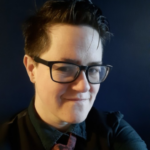
Beth Montague-Hellen
Francis Crick Institute
See Biography
Dr Beth Montague-Hellen started off academic life as a Molecular Biologist studying at Manchester University. The next 14 years were spent as a bioinformatician, accruing an MSc and a Phd on the way.
Following this, Beth decided that supporting others to do excellent research was far more rewarding than actually doing the research and so moved into Libraries and Research Support. Beth takes an as open-as-possible, EDI focused approach to research support and is a big advocate for green OA alongside a completely transparent research cycle including radically open data and software sharing.
Group A
OU Library support to help students study online
With a high percentage of students with a declared disability the Open University has been working with publishers and academic teams to produce accessible course content since 2008. This has been advanced through accessibility testing, enhancements in pedagogy and the use of assistive technologies and content conversions.
The OU library recently concluded an internal research project on the student experience of library converted materials. The research sheds light on the accessibility preferences of students with a declared disability.
In this workshop we aim to guide attendees through the research findings contextualised by an overview of the various accessibility processes at the OU. With the aim of facilitating a group discussing around the following questions:
How best do we ensure the student voice is kept central to discussions about accessibility?
How best can we empower students to reach accessible content? What does accessibility best practice look like from publishers? What format should be prioritised?

Bev Delaney
The Open University
See Biography
Bev Delaney is an eContent Manager/Librarian and has worked at The Open University for 18 years. Her role is broad, building publisher relationships, supplying resources, advice and guidance ensuring module needs are met, evaluation of resources to get best value and specialising in Accessibility. She works across the University with other teams, focussing on accessibility and with the library team, testing content and sharing results and needs directly with publishers. Originally from a commercial and special library background with a breadth of knowledge that helps support the needs of Law, Wellbeing (Nursing and Social work) and Policing.

Alex Mormoris
The Open University
See Biography
Alex Mormoris is an eContent Manager/Librarian who has recently switched careers and has been working at The Open University library for the last year. As part of his role, he builds and maintains relationships with publishers, assists with troubleshooting, and advises on spending decisions across three of the OU’s four academic faculties. Alex supports on accessibility efforts within the OU as well as Equality, Diversity and Inclusion work, supporting work across staff networks and curated collections. Prior to joining the OU Alex worked on both EDI and Access and Participation projects at several different UK universities.
Group A
Shared responsibility (or failure)? Who should bear the burden of maintaining the integrity of the
scientific record? A panel discussion
The current crisis in research integrity in scientific publishing is characterized by several interrelated issues that undermine the credibility and reliability of scientific research. Key aspects include the reproducibility crisis, peer-review failures, publication bias, data fabrication/falsification, plagiarism, predatory journals, pressure to publish, and differing cross-cultural norms around what constitutes best practice in research dissemination.
These issues collectively threaten the foundation of scientific knowledge, making it imperative for the scientific community to address and mitigate these challenges to restore trust and integrity in research. While this is a complex systems problem that implicates/touches all major stakeholders in the scientific community researchers, institutions, funders, publishers, and service providers the scholarly communication ecosystem seems to have shifted the majority of the burden for managing these recent crises to publishers.
Is this fair? Does it make sense? How realistic/sustainable is it for publishers to bear this burden/cost and what is the role for other stakeholders to ensure the credibility of the scientific record? This panel discussion – no presentations! – will feature publishers, librarians, and funders tackling the difficult question of who bears the responsibility for research integrity. Its costs are high. Are we ready to shoulder them together?
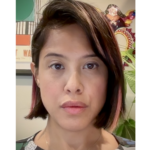
Sara Rouhi
American Institute of Physics (AIP) Publishing
See Biography
Sara Rouhi is the Director of Open Science and Publishing Innovation at AIP Publishing. Driving AIPP’s open science strategy, she focuses on developing new publishing models and sustainable business strategies to accelerate AIPP’s mission to advance pragmatic, researcher-focused open science.
Rouhi joins AIP Publishing from Public Library of Science (PLOS) where she held business development and publishing development leadership roles. Her work centers at the nexus of new business models, open science/access, and equity. She’s a vocal advocate for pragmatic, sustainable, community-driven open science strategies. She has a track record of leading agile, award winning teams at PLOS and Digital Science and received numerous awards and recognition for her work in scholarly publishing. She’s based outside of Washington DC, is an avid long-form improviser in the DC comedy scene, and rants on all things #scholcomm, politics, and comedy on Bluesky @RouhiRoo.bsky.social.

Sarah Thompson
University of York
See Biography
| Sarah Thompson is Assistant Director for Library, Archives and Learning Services at the University of York, where she has responsibility for Content and Open Research. Her teams acquire and manage the library’s information resources and collections, and support York researchers to publish their work open access and develop other open research practices. Sarah has strategic oversight of the Library’s content budget for both paywalled and open access content, and is steering a gradual transition towards the latter. She is also active in a number of different networks, working in collaboration with other libraries, consortia, publishers and service providers to support the move to open access and open scholarship. |

Rachel Bruce
UK Research and Innovation Strategy

Wei Mun Chan
eLife Sciences Publications Ltd
See Biography
Wei Mun Chan is eLife’s Research Integrity Manager. He works closely with eLife’s Executive Editor and editors, overseeing research integrity and publishing ethics for eLife.
GROUP B
Group B
COUNTER-intuitive: up close and personal with usage metrics
In this highly interactive, practical session, we’ll introduce the COUNTER Code of Practice for usage for usage reporting and guide you through the ins and outs of obtaining and working with your reports. You’ll come away understanding the value of normalised metrics for comparing across publishers and over time, which metrics to use and when, and of course best practice for harvesting your data using automated tools.
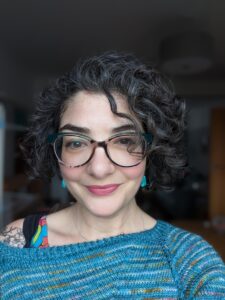
Tasha Mellins-Cohen
COUNTER Metrics / Mellins-Cohen Consulting
See Biography
Tasha Mellins-Cohen, Executive Director at COUNTER Metrics and Founder of Mellins-Cohen Consulting, joined the scholarly publishing industry in 2001. She has held roles within learned societies and commercial publishers across operations, technology, editorial and executive functions, while donating time to key industry initiatives and bodies such as UKSG, ALPSP and STM. In 2020 she started consulting in response to requests for help in developing and implementing OA business models in not-for-profit groups. In 2022 she stepped up from volunteer to Director at COUNTER Metrics, the standard for usage metrics, alongside her consulting work.

Beda Kosata
CELUS
See Biography
Beda is the principal developer of the usage stats platform at Celus. He is also a member of the COUNTER Technical Advisory Group. Organic chemist by education, he switched his career to IT in the early 2000s. His former experience as research scientist helps him in his current role developing tools for research libraries
Group B
Stronger Together: creating a new regional consortium for collective licensing of e-resources
At a time when libraries across the country are looking closely at the affordability of their online subscriptions, a group of London universities is investigating whether pooling resources and sharing procurement could offer a sustainable solution. Senate House Library, Royal Holloway University of London, Central School of Speech & Drama, and King’s College London have come together, with help from Jisc, to trial joint licensing of a selection of e-resources.
We didn’t know if this would be successful but adopted a “learning by doing” approach: try it and find out. We’re tackling issues such as access and authentication, monitoring usage and negotiating fair pricing with suppliers. At time of writing we have launched three new resources, obtaining greater access, better terms and lower pricing than any institution would individually. Negotiations on a fourth resource is underway.
The project remains a small but practical example of creating a new shared service. The project could grow to include more of Senate House’s federal members institutions, acquiring access to more of the resources they want.
Phil and Nick will explore what has worked, what hasn’t, and what we have learnt through working together.
Phil Bower
Royal Holloway
See Biography
Phil has 20 years experience in academic libraries, working in roles related to metadata and discovery, serials and subscriptions, digital resources and collection management, and project management. Since 2020, Phil has been Head of Acquisitions and Content Delivery at Royal Holloway, leading a dedicated team providing students and staff seamless access to information resources. He is committed to finding efficient and innovative ways of working that deliver the best possible experience for library users. His wider professional interests include e-resources licencing, the OA landscape, and data analysis.

Nick Skelton
University of London
See Biography
Nick Skelton is a strategic consultant in digital Higher Education. He facilitates knotty problems, acts as a critical friend, and brings people together. He has a 25 year career in UK HE, starting in IT at the University of Bristol before moving into consultancy in 2019.
Since 2023 Nick has been a part-time Project Manager for Jisc and University of London. He has managed stakeholders, negotiated with publishers, and kept the consortial licensing project on track through a successful pilot.
Nick Skelton is a strategic consultant in digital
Higher Education. He facilitates knotty problems, acts as a critical friend,
and brings people together. He has a 25 year career in UK HE, starting in IT at
the University of Bristol before moving into consultancy in 2019.
Since 2023 Nick has been a part-time Project
Manager for Jisc and University of London. He has managed stakeholders,
negotiated with publishers, and kept the consortial licensing project on track
through a successful pilot.
Group B
End-to-end accessibility: joining the dots
between publisher practice and user experience
Providers of digital platforms and eBooks invest significant resources in improving accessibility and ensuring compliance with standards, but this is only part of the picture of successful resource provision for end-users. The benefits of these investments can be undermined if the users – and those in libraries and universities who support them – are unaware of how to translate technical improvements into user satisfaction.
Users have to navigate multiple layers to get at the content: discovery services, VLEs, reading list systems, publisher and aggregator platforms, varieties of file formats, university-provided software and software on their own computers and mobile devices. And even when all these layers are optimised for accessibility, users may not be aware of the features available to them.
This panel draws on a triple perspective – the content provider, accessibility consultant and accessibility librarian – and will answer questions such as:
- What should librarians expect from their content suppliers?
- How do their accessibility statements help you?
- What does an accessible library service look like?
- How are students supported in developing their digital skills?
- What workarounds exist when accessibility barriers are found?
- How does a university reduce their own accessibility risks under the accessibility regulations?

Matt Kibble
Gale
See Biography
Matt Kibble is Director of Product Management for Gale’s academic databases, with responsibility for Gale Research Complete, the OneFile suite of aggregated periodical databases, specialist resources in Literature and Business Studies, and for areas such as Accessibility, Discovery and Usage. He has been working in this field for more than 20 years, primarily in specialist Arts and Humanities resources: prior to Gale, he helped set up and manage the Bloomsbury Digital Resources division, and before that managed Arts and Literature databases and historical archives at ProQuest

Jessica Wykes
City St George’s, University of London
See Biography
Jessica Wykes is the Accessibility Librarian at City St George’s, University of London Library, where she works on assistive technology, alternative formats, and promoting inclusivity in library services. With a keen interest in improving user experiences, she also chairs the Library Services Accessibility Group.

Alistair McNaught
Alistair McNaught Consultancy
See Biography
Alistair McNaught has inhabited the gaps between students, libraries and publisher practice since 2010. An original members of the Publisher’s Accessibility Action Group, he coordinated the first national survey of e-book accessibility in 2016, following up with the Aspire project which evolved into textBox Digital’s Aspire service.
Alistair was a senior advisor for the Jisc TechDis advisory service until 2015 when he became an accessibility specialist for Jisc. He set up his own consultancy in 2018 and now works independently and in partnership with AbilityNet (on accessibility maturity models) and textBox Digital (supporting publishers in their accessibility journeys).
Group B
What about Open Science?
This breakout session will cover how the game “What about Open Science?”, was created with our UKSG Innovation Award, and the speakers approach to game development and education on Open Science. This competitive Open Educational Resource ‘game’ was designed to create discussion around common open science concepts and ideas that everyone should understand but do not always fully grasp. The game has been tested by OSCAIL in Dublin, Ireland; by SURF in The Netherlands; and at the 19th Munin Conference in Tromsø, Norway. The game will be published online as an OER during UKSG 2025.
The breakout session will include a presentation on game development – from inception to fruition. We will discuss highs and lows, the many pivots, and our experience with Open Peer Review of the game. In addition, we will discuss some of the game ‘remixes’ and key feedback from the launch. There will be time for questions and answers with the speakers.
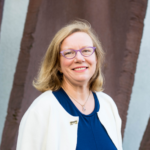
Sarah Coombs
Digital Competency Centre for Practice-Oriented Research/ Saxion University of Applied Sciences
See Biography
| Sarah Coombs is Content Coordinator for the Digital Competency Centre for Practice Oriented Research (DCC-PO), and the Open Science Advisor for Saxion University of Applied Sciences and for the Netherlands Association of Universities of Applied Sciences (NAUAS). She has completed her PhD with the Centre for Science and Technology at the Leiden University looking at how the impact of UAS research can be evaluated. She enjoys being creative in all kinds of ways including thinking of new ways to present Open Science and research support with Aisling Coyne and Katrine Sundsbø. |
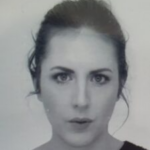
Aisling Coyne
Technological University Dublin
See Biography
| Aisling Coyne is the Open Scholarship Librarian for Technological University Dublin (TU Dublin) where she manages the institutional repository, Arrow, and the Diamond journals published through it; engages in outreach and promotion of Open Scholarship; delivers training to academics, staff, students, and researchers on a variety of Open topics; among other things. Aisling is a member of two Library Association of Ireland special interest groups (Library Publishing and Open Scholarship); Irish Open Access Publishers; National Open Research Forum project SCOIR; is a founding member and co-chair of OSCAIL, among other groups. Aisling has a very special interest in OER, Games and Gamification, creating Open Scholarship games with Sarah Coombs and Katrine Sundsbø since 2022. |
Group B
The status of Discovery: present and future of a story that will never end
Discovery, a complex network ecosystem that encompasses offerings from libraries, content and technology providers, is a crucial part of the knowledge-acquiring process. Its effectiveness is dependent on collaboration between all these stakeholders: users, librarians, content providers, and technology companies.
This presentation will delve into the current state of digital content discovery and explore the potential role of AI in this process. We will address pressing questions such as the persistence of metadata issues and the future readiness of our workflows. How will libraries, content providers, and discovery technology providers rise to the challenge of supporting effective digital content discovery pathways?
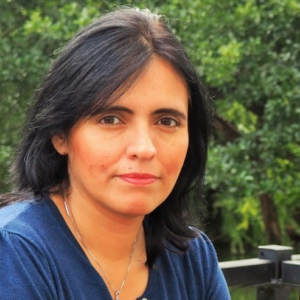
Magaly Taylor
Gale part of the Cengage Group.
See Biography
Magaly Taylor has over 15 years of experience in Discovery, Metadata, and Usage in libraries, content providers, and service providers. She has worked in various types of libraries and contributed to different metadata working groups and committees internationally, including ABES-SC in France, NISO in the US, and UKSG in the UK. Currently, Magaly is the Discovery and Usage Manager for Gale, which is part of the Cengage Group. She is an active member of the UKSG Education Committee; in 2024, she was elected a UKSG Trustee.

Ben Johnson
Ex Libris, a Clarivate company
See Biography
Ben has been working with Knowledgebases and Discovery since 2007 with Serials Solutions, ProQuest, Ex Libris products. Since 2012, he has worked on the NISO KBART Standing Committee, including two years as co-chair with co-panelist Magaly Bascones, and two years on the KBART Automation Working Group. Currently, Ben works on the Ex Libris Provider Relations team with new and existing content providers on improving the quantity and quality of metadata into Ex Libris products for use by libraries, explaining the technical and practical aspects of data exchange across the library supply chain

Will Peaden
Coventry University
See Biography
| Will is Head of Content and Discovery at Coventry University. He leads the team in all aspects of acquistions, e-resources, metadata and discovery, reading lists and document supply. Previously, he worked at Aston University as a Information Resources Specialist focused on metadata, acquisitions and collections management. He is the Chair of CILIP’s Metadata and Discovery Group, Co-Chair of the Mercian Metadata Group, and a member of the BIC Metadata Group and a member of the UK Committee on RDA (UKCoR). |
Group B
AI Tools in Academic Research: empowering AI literacy in the research community with an evaluative framework
This breakout session will explore how Libraries and Learning Resources at the University of Birmingham is supporting the research community’s use of Artificial Intelligence (AI) following the emergence of Narrow and Generative AI technologies. It will explore how a collaboration between the Research Skills Team and Copyright and Licensing Team developed an evaluative framework to empower researchers to self-evaluate an AI Tool, and how this framework became central to a new training session for the 23/24 academic year. We will also discuss the influence this has had on broader institutional activity guiding the use of AI in research.

James Barnett
University of Birmingham
See Biography
James Barnett has been a Research Skills Advisor for Library Services at the University of Birmingham since 2019, having previously worked as an Academic Liaison Librarian at Coventry University. In his role within the Research Skills Team, James provides the university’s research community with training and one-to-one support on topics such as Literature Searching, Reference Management, Open Research and Research Metrics.

Lisa Bird
University of Birmingham
See Biography
Lisa is Copyright and Licensing Advisor at the University of Birmingham providing copyright guidance and managing the digitisation service. Lisa has been an active member of the British and Irish Association of Law Librarians including being Chair of their Professional Development Committee. Lisa has published several journal articles related to education, technology, and widening participation. Lisa’s interest in technology and librarianship continues in 2022 she presented at RLUK’s Digital Scholarship Network meeting on ‘Making your collections digital scholarship ready: copyright and licensing implications of AI and TDM’ and in 2023 presented at the UKSG Conference on ‘A TDM journey: understanding user needs and developing library support’
Group B
Open Access for Books: The
Role of Libraries in a Changing Policy Landscape
Books have long lived in the shade of journal articles when it comes to institutional strategies and funder policies for open access. However, books are essential scholarly formats across many disciplines, so there is a demand to develop institutional strategies. Libraries are at the heart of such developments. But where should librarians begin, how should they advance, and what should they consider if they want to develop such strategies?
Libraries worldwide are updating their collection development policies to evaluate and invest in open access programs. They are also leading campus conversations to help faculty book authors realise the advantages of open access dissemination and align with any national or private funder mandates. This session brings together perspectives from institutions, libraries, and research funders on open access policies for books to share their observations and experiences. The emphasis is on practical recommendations to ensure that books don’t get “left behind” in a global move towards open research.
The session will particularly highlight the evidence-based work of the PALOMERA project (https://operas-eu.org/projects/palomera/), which has researched policies and strategies for open access books in 39 countries in the European Research Area. Based on an extensive open data collection and deep systematic analysis of the data, the project has developed actionable recommendations for eight stakeholder groups, including libraries and research funders.

Niels Stern
OAPEN Foundation
See Biography
Niels Saaby Stern is the Managing Director of the OAPEN Foundation and Co-director of DOAB (Directory of Open Access Books). He has worked in scholarly publishing for more than twenty years. Since 2014 he has also acted as an independent expert for the European Commission on open science and e-infrastructures. He is a member of the OPERAS Executive Assembly and the Vice-chair of the Open Book Collective Board of Stewards and serves on a number of advisory boards and committees.

Tahia Zaidi
UK Research and Innovation (UKRI)
See Biography
Tahia Zaidi is Senior Strategy Advisor at UK Research and Innovation (UKRI). She is responsible for the development and implementation of open access policies and strategies, with a particular focus on monographs. She is presently leading projects to build capacity in the UK research and innovation sector to develop strategies that can advance the transition to open access for monographs.
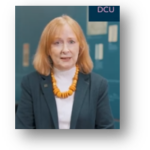
Ellen Breen
Dublin City University (DCU)
See Biography
Ellen Breen is a member of the Library’s leadership team at Dublin City University (DCU). In her current role of Associate Director (Research & Teaching), she is responsible for the strategic development and delivery of targeted library services, engagement, partnerships and support to the research and teaching community. She is responsible for the management of the university’s open access university press (DCU Press) and is a member of the university’s Open Research Steering Group.
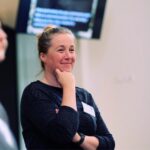
Nienke van Schaverbeke
Delft University Technology (TU Delft)
See Biography
Nienke van Schaverbeke is Head of Scholarly Communications and Publishing at the library of Delft University Technology (TU Delft), she serves as Publishing Director of TU Delft’s dedicated diamond open access publishing house: TU Delft Open Publishing.
With a background in academic publishing (Brill, Cambridge University Press) and cultural heritage (Europeana, Netherlands Institute for Sound & Vision) she is on a mission to connect people with knowledge and culture.
Group B
This house believes journals are no longer the only publishing option
Our goal is to discuss how a form of publishing which emerged in the analogue C20th is now being challenged by the digital C21st. Journals are no longer the only platform for trusted research. Preprint servers, reports on open websites, blogposts, podcasts and videos are all options for today’s researcher. Yet many funders and most universities still rely on game-able journals and their indexes for funding awards and career advancement. Covid showed that journals are too slow and too rigid for a digital-first environment, something that research institutions outside the academy, like IGOs, NGOs and think tanks, have understood. Today, they self-publish their research findings, rapidly, cheaply and openly on their websites without the need for journals and in so doing capture valuable reputational kudos – so why not universities too? Yet there are downsides to these C21st, informal, publication choices: poor metadata and unstable websites makes this content hard to discover and preserve. In this session, you’re invited to join our expert panellists in discussing the pros and cons of different publishing options in today’s digital-first environment.

Toby Green
Coherent Digital Policy Commons
See Biography
To follow

David Worlock
Outsell inc
See Biography
David Worlock is a consultant and advisor on digital information and communication. After beginning as an educational publisher, he built a pioneer database service for lawyers in the late 1970s and in 1985 launched EPS, which he sold to Outsell in 2006. He writes and blogs widely about scholarly communications.
Charlotte Wien
Elsevier
See Biography
Dr. Charlotte Wien is a full professor of scholarly communication at Arctic University Tromsö, Norway and Vice President of Library Relations at Elsevier. Charlotte has worked both as a scholar and as a librarian previously and has extensive experience in curricula development for librarians. During her career she has focused on the research libraries transformation from ‘classical library’ to ‘service center for researchers and students’ and the derived consequences in terms of the changing competence needs for librarians. She holds two master degrees, of which one is in Library Science and PhD-degree in information retrieval.
GROUP C
Group C
Beyond the Stacks: A Sneak Peek into Library Staff Engagement with Job Shadowing
Do your Library teams struggle to stay in touch with each other? Do your staff sometimes not know the function of other teams within your Libraries, and who to turn to with a problem?
The University of Nottingham Libraries Training and Development team saw just that, and wanted an engaging way to combat it. Thus our Libraries Job Shadowing scheme was born.
Job Shadowing is a way for staff to spend time with another team, learning what they do and providing the lightbulb moments when the pieces of the Library jigsaw fall into place. The scheme upskills staff and improves staff engagement, but also promotes cross team collaboration
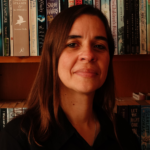
Ayesha Thompson
University of Nottingham
See Biography
| Ayesha is a Chartered Librarian and has been at the University of Nottingham as a Resource Acquisitions Librarian since 2019. Managing a team of Acquisitions Assistants, she is an advocate for upskilling and developing staff members, leading to her joining the UoN Training and Development group and helping to found the Libraries Shadowing scheme. She is also passionate about Equality and Diversity and currently serves on UoN Libraries EDI Project Board |

Cristina Rusu
Loughborough University
See Biography
| Cristina is Copyright and Licensing Manager as well as Senior Library Assistant at Loughborough University. She joined the Open Research Library Team in 2022, and has since completed an MA in Information and Library Studies at Aberystwyth University. She is currently juggling multiple projects on copyright literacy, from interactive online short courses, guides, infographics, comics to videos around copyright. She recently presented a lightning talk at CILIP’s Copyright Conference 2024, on targeted copyright literacy. |
Group C
Evaluating Rights Retention, almost two years on
In May 2023, University of Aberdeen became one of the first institutions in the UK to institute a Rights Retention policy for research articles. As we, the Open Research Team, now look to expand the policy to longform publications, we need to evaluate the effectiveness of the policy and our outreach activities about it. It soon became clear that there was no one source of data that could tell us how well Rights Retention was working. In this presentation, we will look at a variety of data sources, (Pure reporting, OpenAlex, web and service analytics, and internal feedback) and consider their usefulness in evaluating new policies.

Varina Jones-Reid
University of Aberdeen
See Biography
Varina grew up as a library kid, you know the kind who’s parents support their love of books and learning but don’t have any money, so they just live at the library. Several things happened since then, including a stint in library school in the wonderful but frozen metropolis of Pittsburgh, but she’s still just a library kid, trying to make sure all the other library kids can read what they want. Now through open research advocacy.

Susan Halfpenny
University of Aberdeen
See Biography
| Susan Halfpenny is Head of Research and Learning Information Services at the University of Aberdeen. Sections within her remit include open research and metadata, Aberdeen University Press, digital skills, information consultancy and subject enquiry services. Susan has led a range of initiatives to develop digital literacies and facilitate digital transformation and enable open research and digital scholarship. She is passionate about the role the libraries play in providing access to the world’s knowledge; positively impacting the wider community through the development of partnership, access to information resources and development of critical literacies. |
Group C
Adopting strategic approaches to increase scholarly publishing and digital literacy in African academic and research institutions
This paper emphasises the need for strategic approaches to boost scholarly publishing and literacy in African academic institutions. Despite the potential of scholarly publishing to enhance scholarly communication, African content remains underrepresented due to factors like low digital literacy, inadequate training, limited internet access, and high subscription costs. The paper proposes several strategies, including developing digital infrastructure, fostering global collaborations, enhancing training programmes, and advocating for policy changes. By implementing these strategies, African scholars can improve digital content creation and visibility, ultimately benefiting teaching, research, and the global digital economy.

Gloria Tachie-Donkor
University of Cape Coast
See Biography
| Dr. Gloria Tachie-Donkor holds a PhD in Information Science from the University of South Africa. Presently, she is a Senior Assistant Librarian and Head of Client Services Department at the Sam Jonah Library. Additionally, she is a Research Fellow, Department of Information Science, University of South Africa. Her research expertise is in information literacy and information privacy. She led a project to develop research support services and learning spaces at the University of Cape Coast. Dr. Tachie-Donkor teaches information literacy skills at the Department of Information Science, UCC. She is currently an advocate for digital scholarly publishing and digital literacy. |
Group C
It’s Nice, but is it sustainable? Rethinking sustainability for Diamond open access infrastructures and funding models
Those involved in running community-led infrastructures and funding models that support Diamond open access will be familiar with questions being repeatedly raised about the sustainability of their work. In this breakout session, we will hear short talks from five initiatives that are engaging directly with this question, in relation to both open access books and journals, even as they sometimes push back against its often unspoken assumptions. Each contributor will unpack what “achieving sustainability” means for them, including reporting on their concrete progress in support of this work, in their own terms, as well as potentially highlighting the limits of understanding sustainability as merely financial. Panellists will also reflect on developments in the broader scholarly system that potentially both are a challenge for their work and present opportunities. This will be followed by questions from the audience.
Scaling Sustainability: Open Book Collective and Community-led Open Access – Joe Deville, Open Book Collective / Lancaster University
From the Back of the Sofa to the Budget Line: Sustainability at Opening the Future – Kira Hopkins, Copim Opening the Future / Birkbeck, University of London
Why we need a Big Deal for Diamond Open Access Journals – Caroline Edwards, Open Library of Humanities / Birkbeck, University of London
Sustaining open metadata as a public good: benefits and challenges – Rupert Gatti, Thoth Open Metadata and Open Book Publishers
Sustainable Principles: POSI in Practice – Niels Stern, Directory of Open Access Books & OAPEN

Joe Deville
Lancaster University
See Biography
Joe Deville is Professor in Science and Technology Studies at Lancaster University and Managing Director of the Open Book Collective. At Lancaster, he is based jointly in the Department of Sociology and the Management School, as well as being Director of the Centre for Science Studies. He is currently leading the Copim Open Book Futures project, which is developing a fairer, more sustainable and more diverse ecosystem for the production, funding, and preservation of Open Access books. He is also a co-founder and Trustee of Mattering Press, a Diamond Open Access book publisher and UK-registered charity.

Kira Hopkins
Copim Open Book Futures / Birkbeck University
See Biography
| Kira Hopkins works on Opening the Future, a part of Copim Open Book Futures. Previously, they worked at Ubiquity, a born-OA publishing house in London as a book editor and journal account manager, after completing a PhD in Archaeology. |
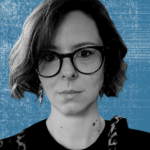
Caroline Edwards
Birkbeck, University of London / Open Library of Humanities
See Biography
Dr Caroline Edwards is Senior Lecturer in Contemporary Literature and Culture at Birkbeck, University of London and Executive Director of the Open Library of Humanities (OLH). She is author of Utopia and the Contemporary British Novel (Cambridge University Press, 2019), co-editor of China Miéville: Critical Essays (Gylphi, 2015) and Maggie Gee: Critical Essays (Gylphi, 2015) and editor of The Cambridge Companion to British Utopian Literature and Culture since 1945 (forthcoming). Caroline is also widely known as an open access advocate, having co-founded the Open Library of Humanities in 2013

Rupert Gatti
Thoth Open Metadata and Open Book Publishers
See Biography
Rupert Gatti is a Fellow in Economics at Trinity College, Cambridge and has been directly involved in establishing several non-profit open access book publishing initiatives, including Thoth Open Metadata, Open Book Publishers, the Open Book Collective, the Open Access Book Network, ScholarLed and the OPERAS Metrics Service.

Niels Stern
OAPEN Foundation
See Biography
Niels Saaby Stern is the Managing Director of the OAPEN Foundation and Co-director of DOAB (Directory of Open Access Books). He has worked in scholarly publishing for more than twenty years. Since 2014 he has also acted as an independent expert for the European Commission on open science and e-infrastructures. He is a member of the OPERAS Executive Assembly and the Vice-chair of the Open Book Collective Board of Stewards and serves on a number of advisory boards and committees.
Group C
Advancing Open Science in Africa: Lessons from the AfLIA Open Data Management Foundational Course for African Librarians
Open Science is gaining momentum in Africa as a movement to make scientific research more accessible, transparent and inclusive. However, the practice of open science within the region is at different stages of development requiring Librarians to play an active role in the advocacy for open science and open data management best practices. This paper reviews the state of Open Science in Africa and examine lessons learnt from the AfLIA Open Data Management Foundational Course for African Librarians.

Mac-Anthony Cobblah
University of Cape Coast
See Biography
Dr Mac-Anthony Cobblah is an advocate for Open Science and Digital Scholarship in Africa. He has strong background in Information Science, Electronic Information Management and Digital Scholarship. He is currently the University Librarian for the University of Cape Coast, Ghana. He is also the Chair of the Consortium of Academic and Research Libraries in Ghana (CARLIGH) and the Chairperson, Academic Libraries and Library Consortia section of the African Library and Information Associations and Institutions (AfLIA) as well as the Licensing Coordinator of EIFL for Ghana. He is part of the team working on the AfLIA Open data management foundational course.
Group C
Using data to analyse Read and Publish deals and a look to how we adapt our processes in a post TA future/world
In light of the Jisc Review of TA agreements, financial pressures faced by HE sector (UK) and uncertainty of block grant support, the sector is as a turning point. Without knowing what comes next we must continue working to analyse the deals to determine what we want and do not want from any future iterations. This session will discuss how we analyse these deals including the use of Unsub and EZProxy. We have begun to adapt our processes and will provide an overview of how we have established our data requirements and created a framework for assessing deals.

Helen Monagle
University of Manchester
See Biography
Helen Monagle is the Subscriptions and Negotiations Officer at the University of Manchester. She takes the lead in Library specific supplier contract negotiations and the management of these complex and evolving contracts. Helen works alongside the Subscriptions Manager in the negotiation of the new generation Plan S compliant subscription journal deals and the implication on legacy ‘big deal’ packages. In addition to this Helen is working to develop a negotiation strategy for Collection Strategies Directorate subscriptions and outright purchases including services and to give negotiation advice to colleagues. Helen has over 10 years’ experience in libraries, mostly in HE libraries but also Health and Public libraries.

Vicki Ridge
University of Manchester
See Biography
| Vicki Ridge is the Subscriptions Data Analyst within the Subscriptions Team at the University of Manchester Library. She leads the data analysis side of the Plan S deals and provides cross departmental support monitoring financial trends, journal renewals and usage data. |
Group C
Not just JUSP. Beyond the silos, making datasets sing to each other
With frozen budgets and more financial pressure than ever before we need to show value for money on every purchase. Evidence-based decision making for resource acquisition has always been high strategic priority for the library this paper seeks to illustrate how linking disparate datasets can illustrate and enhance value for money purchasing. We will present four mini-case studies using datasets from JUSP, Reading lists, Alma and OpenAthens. We will explore some data modelling and various ways to visualise the stories emerging from the data and how these feed library conversations both internally and with the wider university.
Gavin Brindley
Coventry University
See Biography
Gavin has been E Resources Manager at Coventry University since 2012. During this time, he has been involved in many projects including the development and management the of eBook collections via different purchasing models. These Purchasing models include traditional routes such as purchases based on reading lists and requests from academics, purchases of publisher collections and aggregator subscription packages, Demand Driven Acquisition (DDA) via aggregators platforms, and Evidence Based Acquisition (EBA) via publisher platforms and aggregators. He has also been closely involved in the implementation and development of discoverability and WAYFless linking. He has also been involved with usage analytics and Return on Investment (ROI) among other things. Prior to his time at Coventry University Gavin ran library services in an FE setting and prior to that had a background in the preservation of digital objects.

Will Peaden
Coventry University
See Biography
| Will is Head of Content and Discovery at Coventry University. He leads the team in all aspects of acquistions, e-resources, metadata and discovery, reading lists and document supply. Previously, he worked at Aston University as a Information Resources Specialist focused on metadata, acquisitions and collections management. He is the Chair of CILIP’s Metadata and Discovery Group, Co-Chair of the Mercian Metadata Group, and a member of the BIC Metadata Group and a member of the UK Committee on RDA (UKCoR). |
GROUP D
Group D
Realising a New Vision for Academic Publishing: How
Open Institutional Publishers and Libraries are Working Together to Bring About Change in Scholarly Communications
Libraries are increasing becoming involved in publishing in ways that have the potential to bring about change in scholarly communications. From setting up new presses, to providing financial support as well as advocating for open research within institutions, librarians are key to realising a new future for academic publishing.
But much of this work is happening in siloes, split across roles or taking place across different professional departments. There is a lack of a coherent vision for a credible alternative to the status quo and no clear division of labour or allocation of responsibility. This panel explores the way forward to effect positive change.
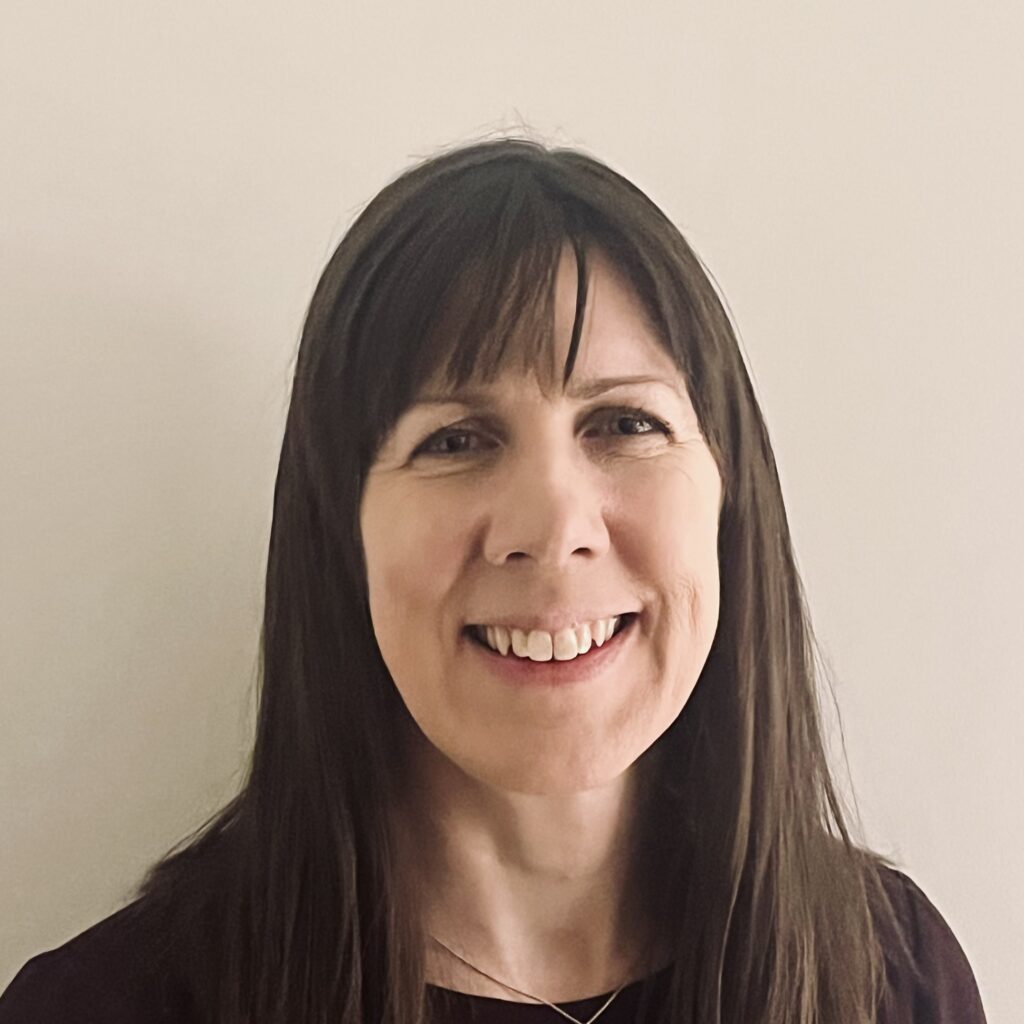
Philippa Grand
LSE Press
See Biography
| After completing a PhD in Modern British History at the University of Manchester, Philippa Grand, began a career in academic publishing that covers both the commercial and university press sectors, including stints at Palgrave Macmillan, Routledge and Bristol University Press. In recent years, she has been involved in open institutional publishing, first as Press Manager at University of Westminster Press (where she is still a member of their Management Board) and now at LSE Press as Head of Publishing. She is co-vice chair of the Open Institutional Publishing Association. |
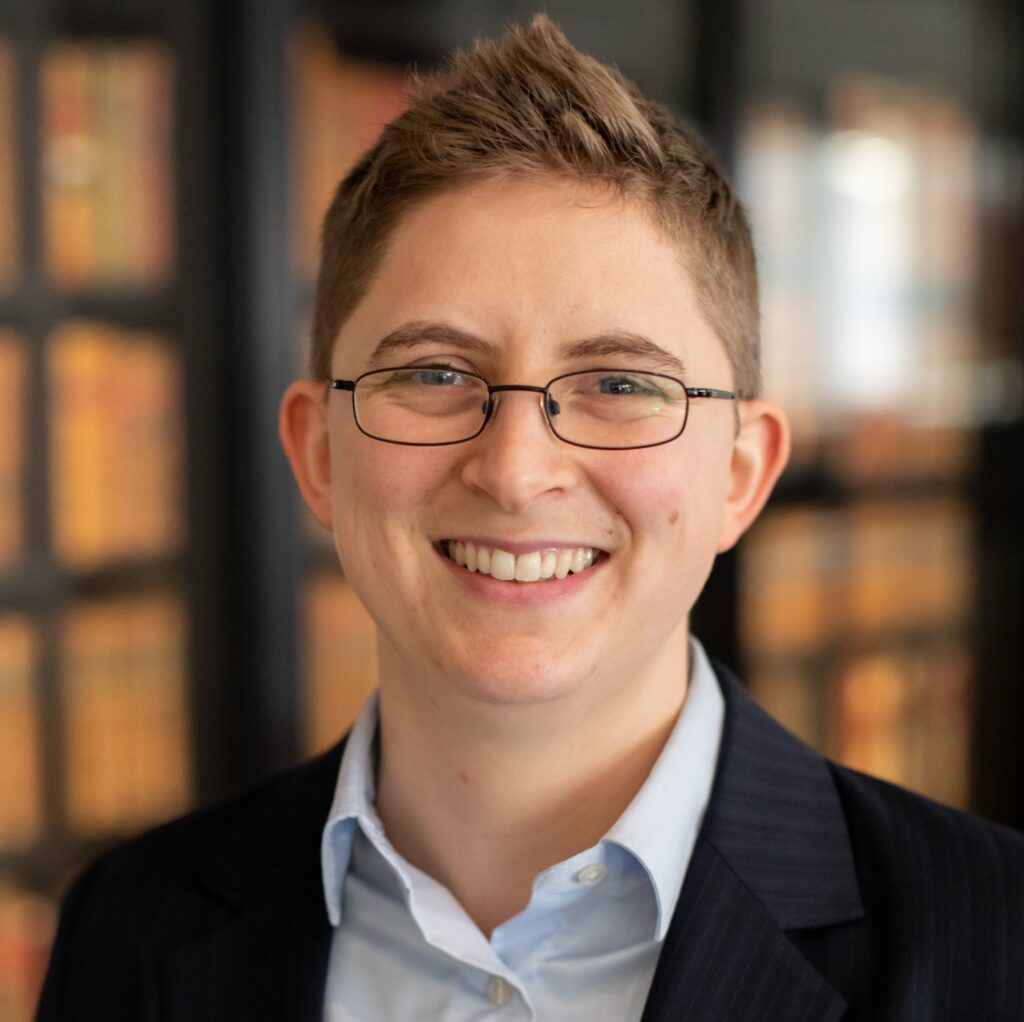
Rosie Higman
LSE
See Biography
| Rosie Higman is Open Research Services Manager at LSE Library where she leads a team responsible for open research, open access, research data management and bibliometrics. Prior to this she held research data management roles at the Universities of Sheffield, Manchester and Cambridge focusing on data sharing and advocacy for open research. She is also undertaking an AHRC-funded PhD on Open Access and the Role of the National Library which is jointly supervised by the University of Sheffield and the British Library. |
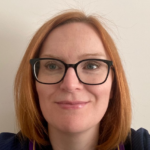
Gillian Daly
Scottish Confederation of University and Research Libraries (SCURL)
See Biography
| Gillian Daly is Executive Officer of SCURL and Press Manager for Scottish Universities Press (SUP). A qualified librarian, Gillian has held roles in both education and public libraries, and was Head of Policy and Projects at the Scottish Library and Information Council before moving into research support as Knowledge Exchange Partnerships Manager at the Scottish Graduate School for Arts and Humanities. Gillian joined SCURL in 2019 and has led the development of SUP a library-led open access press involving collaboration across 19 universities. |
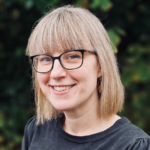
Paula Kennedy
University of London Press
See Biography
| Paula Kennedy has overall responsibility for the University of London Press and its strategy. She leads and manages the Press team and its collaborations with a range of publishing partners and other presses, particularly regarding open access publishing. Before moving to UoL Press in 2021, Paula worked for academic publishers including Palgrave Macmillan as the Global Head of Humanities and Publisher for Literature and Theatre/Performance Studies, at the AHRC as Head of Creative Arts and Digital Humanities and as a freelance impact consultant for universities. Paula is a member of the Advisory Board for the ‘Open Book Futures’ project and a member of the OPERAS Open Access Books Network Special Interest Group. |

Sarah Thompson
University of York
See Biography
| Sarah Thompson is Assistant Director for Library, Archives and Learning Services at the University of York, where she has responsibility for Content and Open Research. Her teams acquire and manage the library’s information resources and collections, and support York researchers to publish their work open access and develop other open research practices. Sarah has strategic oversight of the Library’s content budget for both paywalled and open access content, and is steering a gradual transition towards the latter. She is also active in a number of different networks, working in collaboration with other libraries, consortia, publishers and service providers to support the move to open access and open scholarship. |
Group D
One Nation One Subscription (ONOS): The Path to Transformative Knowledge Agreements in India
This session will explore the One Nation One Subscription (ONOS) initiative of Government of India which aims to provide countrywide access to national and international scientific and academic content. The ONOS intends to sign national licenses with most of the prominent STEM publishers and database producers of the world whose contents are already being subscribed by various institutions of higher education and research organizations either directly or through Government-funded consortia. This initiative is expected to benefit access to e-resources from 70 publishers to all research and educational institutions including universities, colleges, research organizations as well as every citizen of the country.
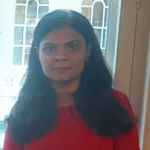
Kruti Trivedi
Information and Library Network Centre
See Biography
| Dr. Kruti Trivedi joined the INFLIBNET Centre in 2007 and currently holds the position of Scientist D (LIS). She plays a crucial role in several key initiatives, including the eShodh Sindhu Consortium, the NLIST project funded by the Ministry of Human Resource Development MHRD, and the National Institutional Ranking Framework NIRF project. In her capacity at INFLIBNET, Dr. Kruti leads the bibliometrics team, contributing significantly to the Centre’s research and analytics efforts. Additionally, she is involved in the Government of India’s One Nation One Subscription ONOS initiative, which aims to secure national licenses for e-resources and enhance accessibility to scholarly content across the country. |
Group D
The art of the possible: Mid-tech and low-cost ways to upgrade your skill set and harness free data
sources to enhance your bibliographic metadata
Without the resource to purchase new records or employ trained cataloguing staff to create bespoke metadata and enhance existing records, how can library collections teams ensure that their catalogue records are of sufficient quality to drive discovery and enable collective collections comparison work to be as accurate as possible?
Our session we will give example workflows, highlight useful resources and helpful community members. We’ll demonstrate the impact and added value technical services teams have on improving end user experience, as well as discussing how improving accuracy and detail in MARC records can positively affect the results of collective collections work.
Jennie-Claire Crate
Jisc
See Biography
| Jennie is the Product Manager for Jisc Library Hub, managing the team that supports Library Hub Cataloguing, Library Hub Compare, Library Hub Discover, and the National Bibliographic Knowledgebase. Her role includes strategic planning and convening communities of practice in order to investigate ways of solving librarian’s problems around discovery and metadata workflows. Before moving to Jisc in 2023, Jennie worked as Curation & Discovery Supervisor at the University of Kent and prior to this held metadata roles at several UK universities. She enjoys testing ways of streamlining data processes and playing with spreadsheets of statistics |
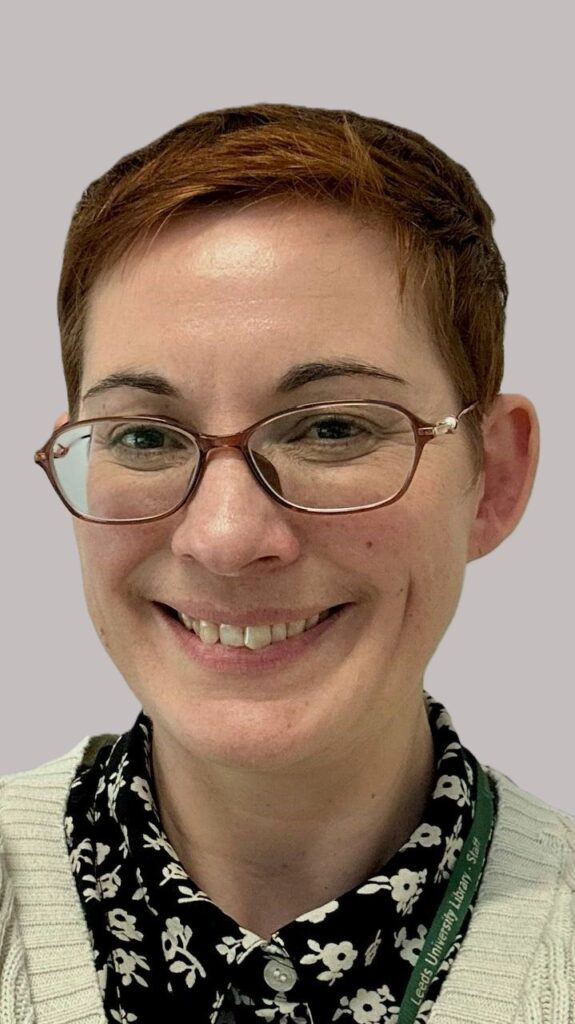
Elly Cope
University of Leeds
See Biography
| Elly Cope is a cataloguer by inclination and training, though she now has to watch while others do the fun stuff and derive what pleasure she can in the metadata work vicariously. She provides strategic leadership and a supportive environment for experimentation and development to the Access & Acquisitions teams at the University of Leeds. Having joined the University as Metadata Team Leader she is now Head of Access & Acquisitions with responsibility for purchasing, reading lists, accessibility of e-resources, metadata, access and discovery. |
Group D
Growing and diversifying our future profession: How HE libraries develop and evaluate their Students as Partner roles
The role of student staff in academic libraries has changed. Libraries are increasingly working in partnership with students to Co-create and co-develop services, projects and initiatives (Salisbuy et al. 2021), but what is the impact of these schemes and how can we evaluate them effectively? This breakout session will explore how HE libraries are developing and evaluating students as partner roles. It will communicate the results of a large scale research project exploring the approaches of SCONUL institutions to student roles within their Libraries and if (either intentionally or not) these roles have had an impact on progression into the Library and Scholarly Communications sector or onto LIS programmes.
The breakout session will also discuss two case studies of libraries developing student as partner roles at Manchester Metropolitan University and Lancaster University, including how the impact of these roles has been evaluated. Attendees will benefit from learning more about the current approaches of other institutions to developing student as partner roles and the impact this has had on diversifying the workforce of the sector, as well as receiving practical tips on implementing and evaluating student as partner schemes at their own institutions.

Tom Morley
Lancaster University
See Biography
| Tom is currently undertaking a secondment as the Research Culture and Open Monographs Lead at Lancaster University Library. Within this role he leads and coordinates programmes of activity to develop an Open Research Culture as well as exploring options to facilitate open monograph publishing. In his substantive post he works across the areas of Open Access, Research Intelligence and Research Data Management to coordinate and deliver a range of projects, services and initiatives as an Open Research Officer. Tom is also co-editor of the UKSG e-News. |
Lesley English
Manchester Metropolitan University
See Biography
Lesley English is the Head of Academic Engagement and Teaching Services at Manchester Metropolitan University. She leads a team of Academic Liaison Managers, Librarians, Learning Advisers and eLearning Developer, whose focus is on engagement with academics across faculties and academic departments, and delivering Infoskills teaching, both embedded and centrally. Lesley previously worked as Head of Library Engagement at Lancaster University where she created two students-as-partner schemes, one funded by Access & Participation Plan funding. Lesley has roles within the Academic Libraries North Consortium as Co-lead on the Steering Group for EDI and as Co-Chair for the Mentoring Oversight Group.
Group D
The first year of Controlled Digital Lending at LSE
This session will briefly explain the general principles of CDL, and address it in the context of UK legislation. We will review the first year of the CDL programme at LSE – discussing the initial approach, consultation with the leadership and institutional legal teams, the selection of titles for the collection, risk management, and how it works in practice with the digital representations and their presence on different library platforms.
Wendy Lynwood
London School of Economics and Political Science
See Biography
Wendy Lynwood is the Law Librarian and Copyright Officer at LSE. Following an early career sojourn in the world of law firm libraries she has since worked in a variety of liaison roles in Higher Education. Joining LSE during the pandemic she had to quickly get up-to-speed on all things copyright related, and now knows more about the Copyright, Designs & Patents Act than she could have anticipated. Wendy is a Fellow of Advance HE, a Chartered member of CILIP, and a CILIP mentor. This is her first UKSG conference and she’s looking forward to the experience!
Kevin O’Donovan
London School of Economics and Political Science
See Biography
Kevin O’Donovan is the Library Acquisitions Manager at the London School of Economics. He has previously been part of the NAG Executive Committee, the UKSG Outreach and Education Committee, and is currently the chair of the IGELU Alma Digital working group.
Group D
Open Educational Resources and sources: Initiatives from Government of India and Higher Educational Institutions
He will present availability Digital Open Access Resources or e-learning platform initiated by the Government India and other educational institutes in India used by the students, faculty and researchers. Digital resources and e-learning have become significantly important in education systems across the world. These open educational Resources includes course materials, modules, textbooks, videos, software, and other tools, materials or techniques, used to support and provide access to knowledge and educational resources. The Ministry of Education, Govt. of India undertakes a large number of projects for providing on-line content and resources for all-round development of students. Some of these are NPTEL, Virtual labs, Talk to Teacher, Spoken Tutorial, e-PG Pathshala, SWAYAM, MOOCS Project, Sakshet, etc. There are also NDLI, National Science digital Library, Shodhganga, E-Pathshala, Gian, E-PG Pathshala, Moocs, SWAYAM, SWAYAMpraba, Virual Labs etc. It will also explain what the benefit is and who can be beneficial of these e-learning portals. It will also discuss thee valuable Government information Sources used for research and educational purposes like, the Ministry of Statistics and Programme Implementation including National Statistical Office, Central Statistical Office, National Sample Survey, the Registrar General of India, the Reserve Bank of India, NITI Aayog, The Labour Bureau, Census of India, and resources like the Indian Statistical Abstract, the Report of Currency and Finance, and the Combined Finance and Revenue Accounts of the Union and States.
Debal Chandra Kar
Galgotias University
See Biography
Dr. Debal Kar is has 37 years experience in Library profession worked as University Librarian at Galgotias University, Dr. B. R. Ambedkar University Delhi, TERI University and at The Energy and Resources Institute (TERI). Dr. Kar has obtained a “Management of Information in Science and Technology” (MIST) Certificate course from Vrije University Brussels, Belgium. Dr. Kar is a recipient of the Endeavour Executive Fellowship 2014 from the Government of Australia and worked as a Visiting Fellow at the University of Technology, Sydney, Australia, 2014. He is a SLA Fellow (USA). He is the founder-editor of World Digital Libraries. He served as president of SLA Asian Community/Chapter in 2008, 2017, and 2021. He was Vice-Chair of the IFLA Regional Division Committee – Asia and Oceania 2021-2023 and IFLA Social Science Libraries Section Standing Committee 2021-2025 member.
Group D
Catching Up with NISO’s CREC: Tools for Preventing the Spread of Retracted Research
Retracted research is published work that is withdrawn, removed, or otherwise invalidated from the scholarly record can be inadvertently propagated within the digital scholarly record through citations. This is more likely to happen when the process for effectively communicating retraction at all publication lifecycle stages is unclear. In June 2024, the NISO CREC (Communication of Retractions, Removals, and Expressions of Concern) Working Group published its Recommended Practice, a solution that aims to ensure that retraction metadata is shared across the publishing and discovery ecosystem. This session aims to educate potential adopters about the benefits of integrating this Recommended Practice into their workflows.
Keondra Bailey
National Information Standards Organization (NISO)
See Biography
Keondra Bailey is the Assistant Standards Program Manager at the National Information Standards Organization (NISO). In this position, she works closely with a range of working groups, standing committees, and topic committees to further NISO’s mission of promoting standards development through collaboration. Keondra earned her Master of Library Science (MLS) degree from North Carolina Central University.
Group D
Academy-owned: Supporting scholars who are taking a stand for nonprofit, equitable, inclusive,
and open alternatives to high-profit journals
In recent years, numerous editors and editorial boards of leading journals have stepped down in protest against publisher practices that they believe are harmful to research and academia. Subsequently, several have established successful new journals in collaboration with nonprofit organizations, often overcoming competition from the very publications they left behind.
Join us for a lively discussion of how libraries, library publishers, and nonprofit presses can effectively support researchers aiming to create high-quality, diverse, equitable, inclusive, and open alternatives to expensive, high-profit journals. We will hear from two scientists who established such alternative journals, including someone who was part of a high-profile editorial resignation, and learn more about the kinds of support they and their colleagues seek from libraries and academic publishers. We will also explore some of the benefits and challenges of moving an editorial operation from a large, commercial publisher to a smaller nonprofit and share strategies for campus partners interested in supporting research communities that are starting new journals or growing existing ones.

Amy Harris Ryan
MIT Press
See Biography
Amy Harris has held various positions at the University Press of Florida, the University Press of Kentucky, and The MIT Press. Her nineteen-year career in scholarly publishing has had a particular focus on helping academic work find its widest possible audience and achieve its greatest impact, often in partnership with libraries.
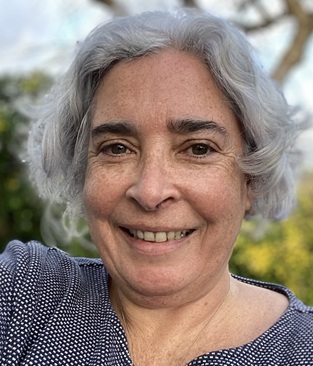
Kate E. Watkins
University of Oxford
See Biography
Kate Watkins is a Professor of Cognitive Neuroscience at the University of Oxford. Her research uses brain imaging and stimulation to understand the neural basis of speech and language. In 2019, she co-founded a new open access journal at the MIT Press called the Neurobiology of Language. Kate is currently the co-Editor-in-Chief of the journal.

Caroline Edwards
Birkbeck, University of London / Open Library of Humanities
See Biography
Dr Caroline Edwards is Senior Lecturer in Contemporary Literature and Culture at Birkbeck, University of London and Executive Director of the Open Library of Humanities (OLH). She is author of Utopia and the Contemporary British Novel (Cambridge University Press, 2019), co-editor of China Miéville: Critical Essays (Gylphi, 2015) and Maggie Gee: Critical Essays (Gylphi, 2015) and editor of The Cambridge Companion to British Utopian Literature and Culture since 1945 (forthcoming). Caroline is also widely known as an open access advocate, having co-founded the Open Library of Humanities in 2013.
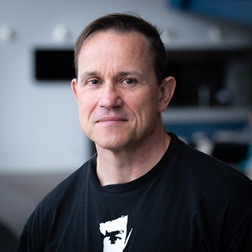
Zoltan Dienes
University of Sussex
See Biography
Zoltan Dienes is a professor of psychology at the University of Sussex, where he has worked since 1990. He works in two areas: consciousness science and scientific reform. As a major part of his consciousness research, he has one of the most active labs in the world investigating hypnosis, or more generally, the process of phenomenological control. In terms of scientific reform, he has advocated methods for obtaining evidence for no effect (using Bayes factors – he provided the first online Bayes factor calculator in 2008); he was on the first Registered Reports editorial board in 2013 (an article type where papers are accepted before the data are collected); and is a co-founder of Peer Community In Registered Reports (https://rr.peercommunityin.org/), where scientific articles are free for authors and free for readers. He does not author, review nor edit for scientific journals run by for-profits, except for society journals (where there is some trickle down of money to an academic society).
Group D
Can Gold OA survive a shift to Green?
It’s been over 20 years since the Budapest Declaration on Open Access and while the OA movement has made significant headway, the future end-state is becoming increasingly less clear. In the wake of Plan S, a future fully Gold Open Access state seemed, for the first time, a possibility and then – to the concern of many stakeholders – a potential inevitability. Global market conditions in the interim, however, have made it increasingly difficult for publishers and libraries to negotiate OA agreements supporting a full transition to Gold OA. Instead, recent policy mandates have focused on immediate OA without the provision of financial support for Gold OA, effectively preferentially promoting Green OA. Concurrently, we’re seeing broader interest/adoption of the Rights Retention Strategy and a move away from paying APCs – and for the first time, we’re seeing a decline in the growth of Gold OA relative to pay-walled content. We’re also starting to see agreements suggesting financial support for zero embargo Green OA. This session seeks to examine the complex interplay and potential consequences of a shift in global policy mandates from Gold to Green and what it could mean for stakeholders across the industry, including researchers. Speakers will examine existential questions such as ‘What do we really want from OA?’, ‘What does a shift to green OA mean for subscriptions, TAs and the transition of the industry to fully OA?’, ‘How can Green OA routes be developed to better support researchers’ etc.

Sara Bosshart
Royal Society of Chemistry
See Biography
Sara is Head of Open Access at the Royal Society of Chemistry where she is responsible for OA across the organization. Sara is a Board member of OASPA and Chair of the Governing Board of ChemRxiv. Previously, Sara was OA Publisher at IWA Publishing where she transitioned the business to OA through a variety of models including Subscribe to Open and Read & Publish. Originally a marine geologist, Sara began her career at Frontiers where she launched a suite of new OA journals in the Life Sciences and was responsible for the expansion of Frontiers into the UK.

Beth Montague-Hellen
Francis Crick Institute
See Biography
Dr Beth Montague-Hellen started off academic life as a Molecular Biologist studying at Manchester University. The next 14 years were spent as a bioinformatician, accruing an MSc and a Phd on the way.
Following this, Beth decided that supporting others to do excellent research was far more rewarding than actually doing the research and so moved into Libraries and Research Support. Beth takes an as open-as-possible, EDI focused approach to research support and is a big advocate for green OA alongside a completely transparent research cycle including radically open data and software sharing.
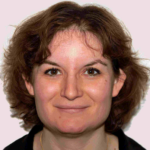
Adeline Rebe
Couperin Consortium / University of Strasbourg Library Services
See Biography
Dr. Adeline Rege holds a PhD in Modern History from Sorbonne Univerity and a Degree as a Scientific Librarian. She is co-head of Negotiations department at the french consortium Couperin and head of Research support and Open Access Officer at the University of Strasbourg. Her expertise extends to the negotiation of open access agreements with publishers, supporting negociators, and advocating for authors rights. Drawing on her national experience in France, she also brings an international perspective to open science, as a member of LERU’s Info & Open Access Policy Group and contributing, as an external expert and reviewer, to Switzerland’s Open Science Strategy.

Anna Vernon
Jisc
See Biography
Anna Vernon. Head of Research licensing at Jisc. She is responsible for the strategic development and delivery of Jisc’s research content and software portfolio and leads the open access negotiations on behalf of UK institutions. Prior to working at Jisc Anna worked at the British Library on a range of copyright and licensing initiatives.
Meagan Phelan
AAAS
See Biography
Meagan is the Communications Director for the Science family of journals, where she oversees efforts to boost the visibility of all forthcoming Science family of journal content for reporters worldwide. Prior to joining AAAS in 2013, she served as a senior writer at AIR Worldwide, where she interacted with more than 65 Ph.D.-level scientists and engineers to communicate advances in wind engineering, seismology, climate science, and other fields. Previously, she was a senior writer and editor at the Memorial Sloan-Kettering Cancer Center. Meagan holds a Bachelor’s degree in Biology and Spanish from Gettysburg College, and a Master’s degree in Science Writing from The Johns Hopkins University. In 2008, Meagan received a Fulbright Scholarship to work with Dr. Juan Antonio Raga at the University of Valencia to help determine the cause of morbillivirus resurgence among small cetaceans in the Mediterranean. Meagan also completed science-reporting internships with Science as well as National Public Radio and has freelanced for various outlets including Anesthesiology News.
Database accessibility: Proactivity, transparency, buy-in.
How do we balance the demands of current accessibility legislation with university students’ needs for external database content?
To meet our legal requirement, we researched and sought advice from other institutions in the sector then built our own workflow which involves the implementation of a 5-point checklist. This has raised the profile of accessibility amongst our university colleagues but is skills and labour intensive. Please come and visit our poster session to find out more and offer your suggestions.
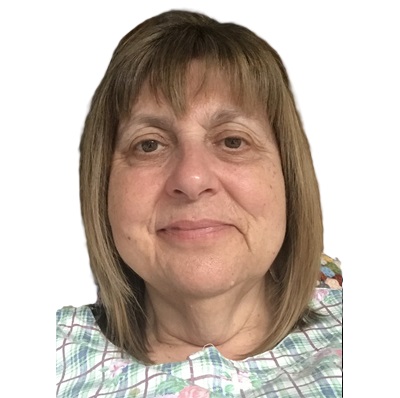
Debi Roland
University of the Arts London
See Biography
| As part of the Discovery Team in Library Services Debi has been involved in the procurement, management and use of e-resources since the advent of networked CD-ROMs and in the late 1990s, was part of a team which created a library presence for the University of the Arts London on the World Wide Web – The i page. In more recent years she has been involved in writing accessibility statements and liaising with publishers and suppliers to ensure e-resources are accessible for all. Outside of work she still has 2 adult sons living at home and relaxes by knitting and crocheting. |
Anna Dölling
University of the Arts London
See Biography
| Anna has worked for University of the Arts London (UAL) Libraries since 2000. She currently works a assistant librarian for access and inclusion, and as a library assistant. Since the start of her library career Anna has been interested in the accessibility of resources and spaces, physical and digital. Anna feels that disability inclusion must be at the forefront of any service provision, from planning and conception to delivery and evaluation. |
The Hidden REF, celebrating all research outputs
Lyndsey’s ‘s poster session will follow on from her lightning presentation taking place on Tuesday at 12:00.
The Hidden REF campaign recognises all research outputs and roles that make research possible.
Our 2021 and 2024 competitions highlight the diversity of contributions, from librarians and technicians to research software engineers and administrators — vital roles often overlooked in traditional assessments. In 2023, the Festival of Hidden REF gathered professionals and policymakers to discuss creating a more effective and equitable research environment.
I will share our initiatives, outcomes, and strategies for gaining recognition for these roles, inviting the UKSG community to collaborate and discuss strategies for gaining well-deserved recognition for these hidden roles.

Lyndsey Ballantyne
Software Sustainbility Institute
See Biography
| Lyndsey Ballantyne is a Community Manager at the Software Sustainability Institute where she plays a key role in advocating for under recognised contributors to research. By organising workshops, conferences, and networking events, she creates opportunities for people from different backgrounds to contribute to and benefit from the research software ecosystem. She is involved in the Hidden REF initiative, which aims to recognise the often-overlooked work of research staff, such as software engineers, librarians and publishers in traditional assessments like the Research Excellence Framework (REF). Lyndsey promotes inclusivity and recognition for essential behind-the-scenes roles, ensuring their contributions to research are valued and celebrated. |
Jisc’s open policy finder – re-developing Sherpa and looking to the future
Karen’s poster session will follow on from her lightning presentation taking place on Tuesday at 12:00.
‘Jisc’s Open Policy Finder, formerly Sherpa Services, has undergone significant changes over the past year as part of our commitment to building a future-ready, streamlined, and efficient product to support open access workflows. These changes represent not just a fresh identity but also the foundation of a platform designed to adapt and scale for future use cases, ensuring continued relevance and impact in a rapidly evolving environment.
Our poster will accompany our lightning talk, highlighting key enhancements including the launch of our unified website and the rebranding of the service in November 2024. We will also share our roadmap for further development, and invite attendees to view and share feedback on the changes.’

Karen Jackson
Jisc
See Biography
Karen is a product manager in the research management team at Jisc, working on open policy finder (previously Sherpa services). She has been at Jisc since 2017, and previously worked in HE libraries with a particular focus/interest in open access and institutional repository management & administration
An International Data Space for OA Book Usage Data Exchange Across Public and Private Stakeholders – Project Update
While APIs have made it easier for libraries, publishers, policymakers, and information services to access, use and innovate with usage and metadata at scale, time and human resources are still required to manage, compile, and link OA book usage data metrics coming from multiple platforms in multiple formats. OA book usage data is even more important at this very moment when EU-funded projects such as PALOMERA worked to support policy alignment for OA monographs in Europe, and the UK has seen the implementation of their new 2024 UKRI policy including long-format outputs. It begs the question, how can OA book impact be monitored more effectively to help inform policy making?
In 2022, the Mellon Foundation awarded a project team led by the University of North Texas, OpenAIRE, and OPERAS to develop “governance building blocks” for the OA Book Usage Data Trust in line with both the Principles of Open Infrastructure and protocols emerging from the Design Principles for International Data Spaces (IDS). Over 24 months, stakeholders leveraged in-depth community consultations to produce a rulebook to guide participation in the data space community, define Data Trust membership benefits, and get feedback on cost-recovery and functional requirements. In 2024, the Data Trust’s Technical Advisory Committee and Board of Trustees selected an experienced IDS technical team to build out the technical OA Book Usage Data Trust infrastructure. Using a staged development approach focused on “scaling small”, a limited proof of concept IDS focused on the exchange of COUNTER item-level views and downloads data was developed and tested with alpha cohort partners (JSTOR, LibLynx, Michigan University Publishing, Punctum Books, Taylor & Francis) with plans to extend IDS security and auditing functionality to support additional data exchange use cases in beta cohorts of publishers, presses, aggregators, and additional data analytics providers (e.g. EBSCO, OAPEN, Longleaf).
This poster will present the project update with the findings to date and provide visitors with interactive QR codes.

Ursula Rabar
OA Book Usage Data Trust
See Biography
| As Community Manager for the OA Book Usage Data Trust, Ursula facilitates global consultations and engagement with diverse OA book usage stakeholder communities. Her position is hosted by OPERAS-EU, the European infrastructure consortia focused on Open Scholarly Communication in the European Research Area for Social Sciences and Humanities. Prior to this position, Ursula worked in publishing and bookselling, focusing on print book sales, foreign rights, OA journal commissioning and institutional partnerships. |
Feedback
The conference was great and was organised really well. Everyone was really friendly and I gained loads from it.
Previous delegate
I thoroughly enjoyed the conference and look forward to returning next year.
Previous delegate
Contact
General queries – events@uksg.org
Sponsorship queries – Par Rock at Content Online for more information – par@contentonline.com
Exhibition queries – Karina Hunt at KHEC – karina@khec.co.uk
Cancellations
The closing date for cancellations is Friday 28th February at 5pm GMT, after which date cancellations will not be eligible for a refund. Cancellations should be sent in writing to events@uksg.org.
The UKSG code of conduct can be found here
The General UKSG booking terms and conditions can be found here




















